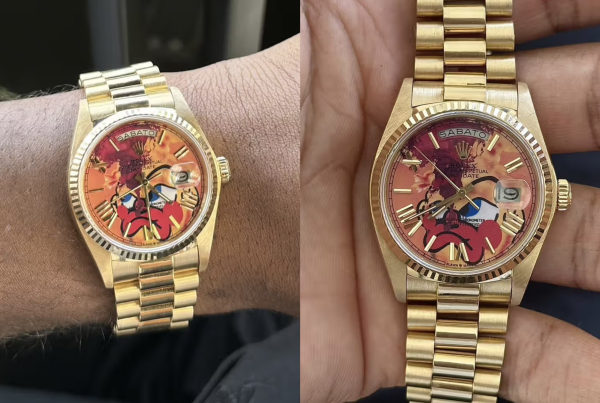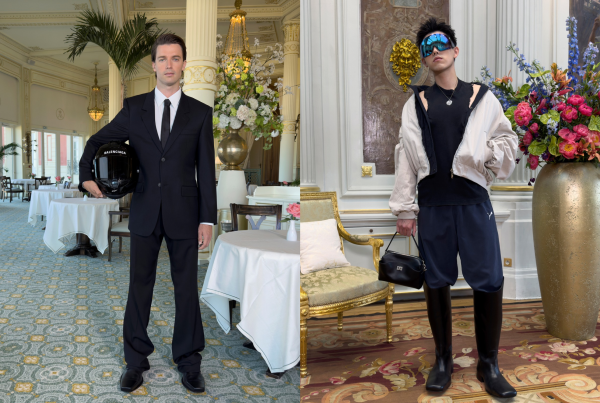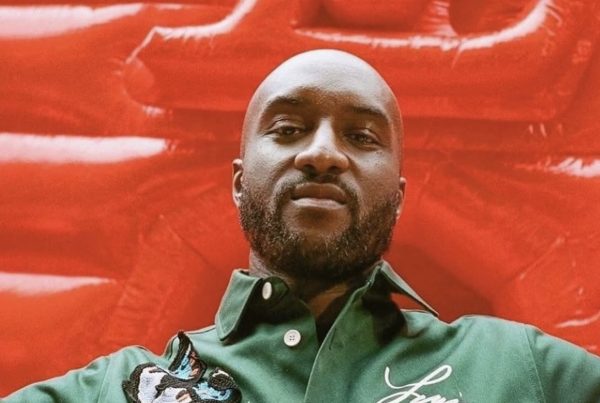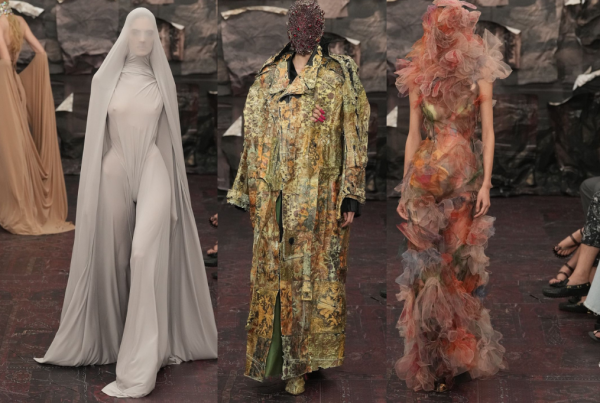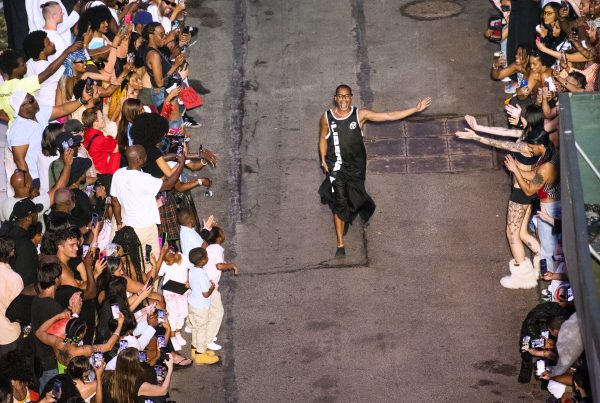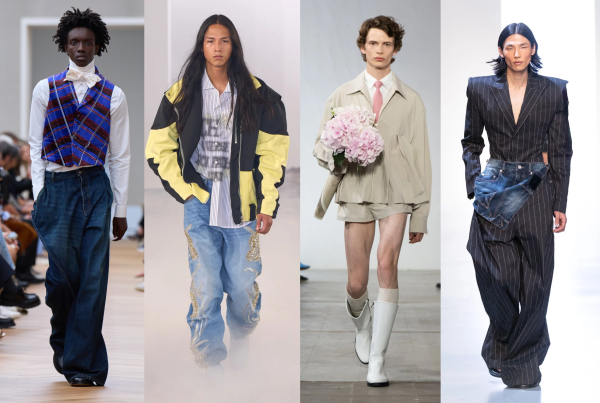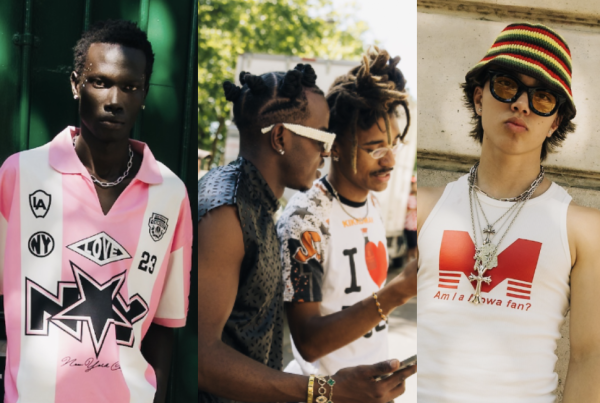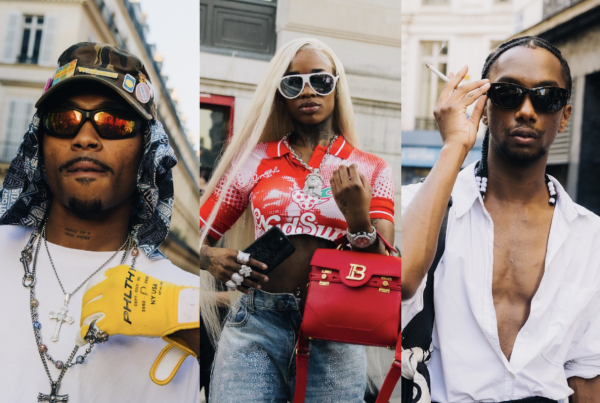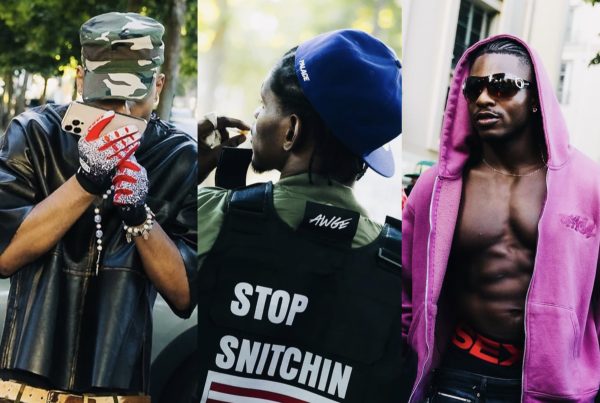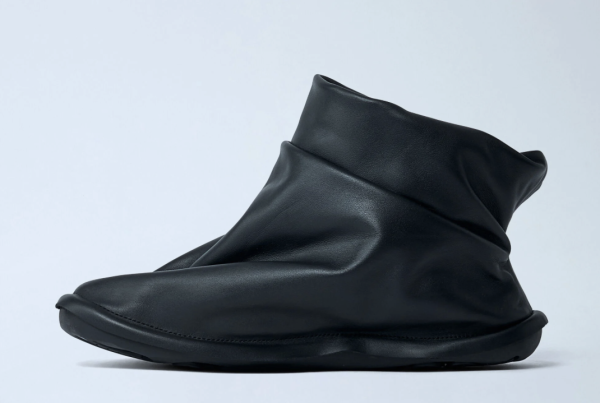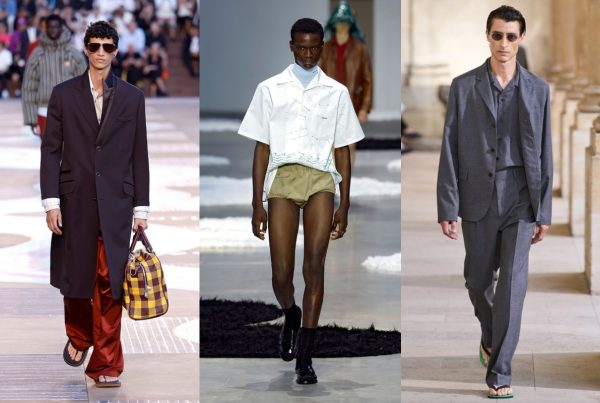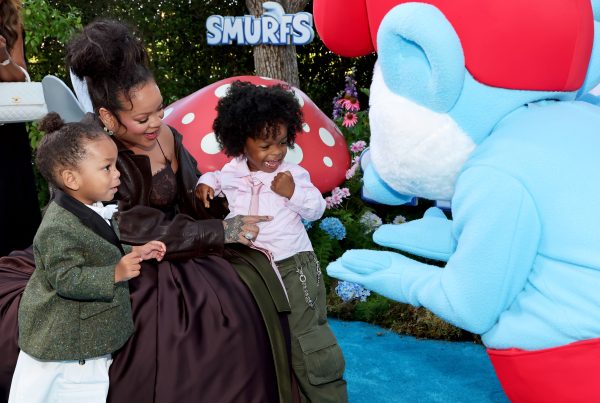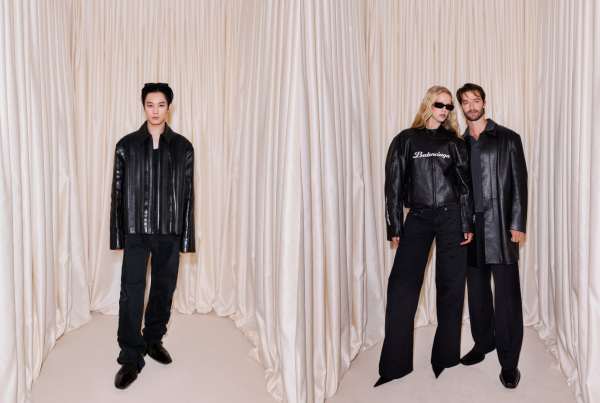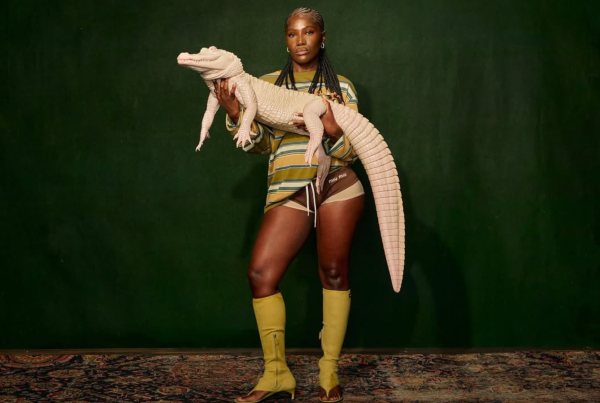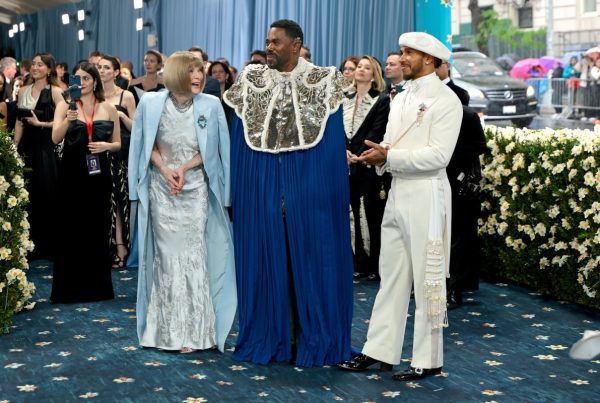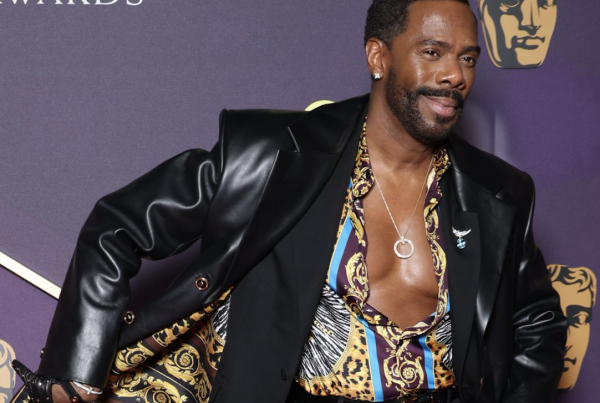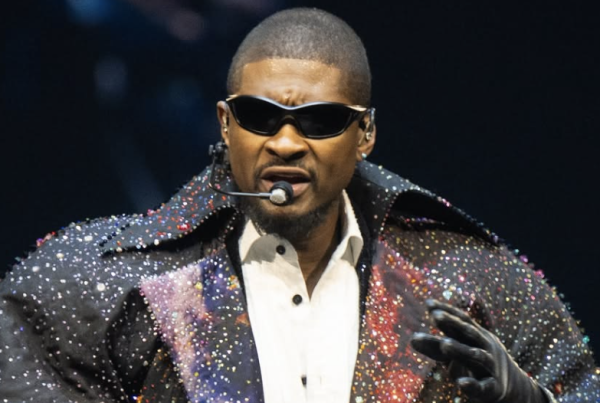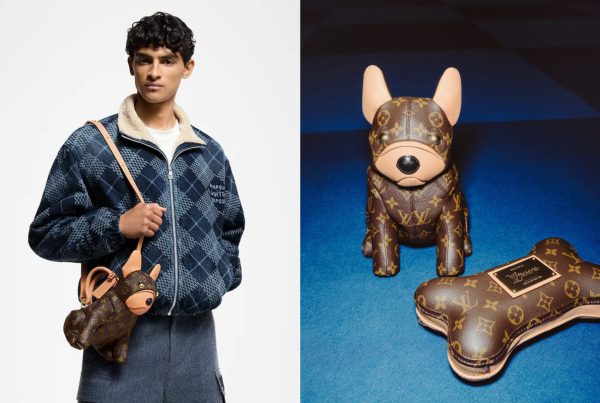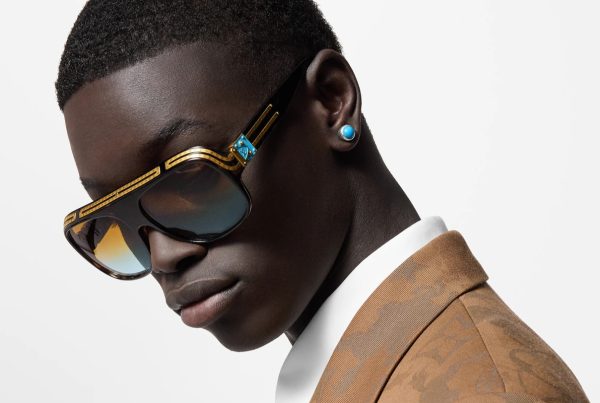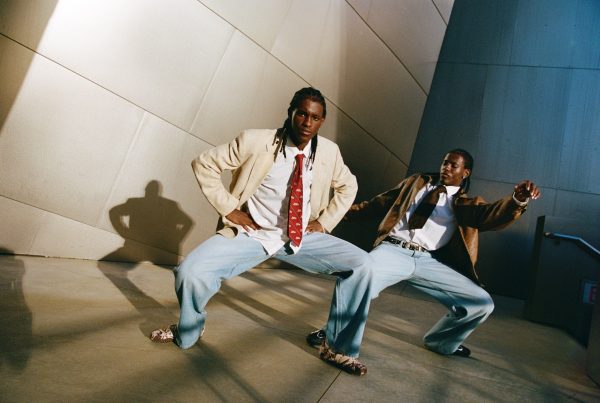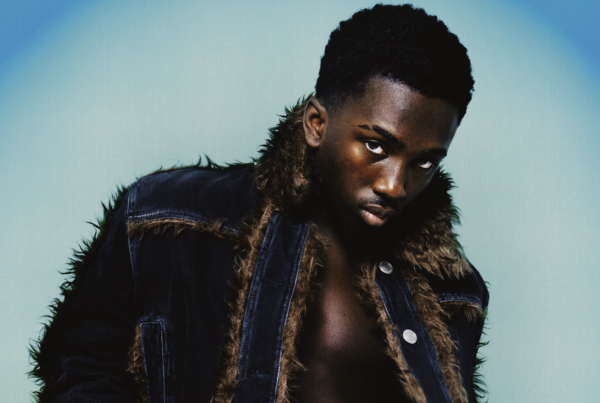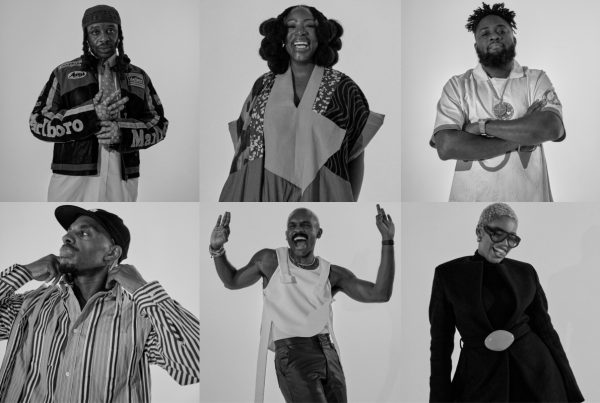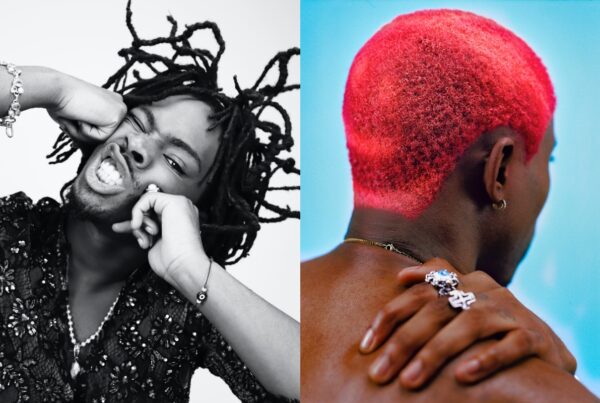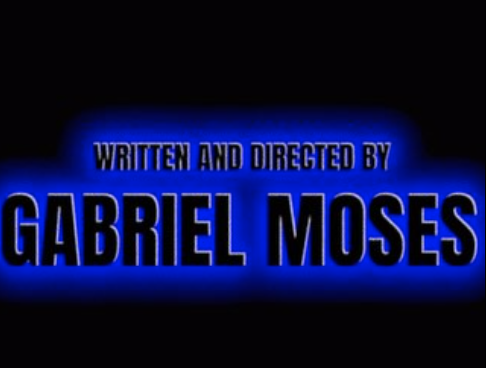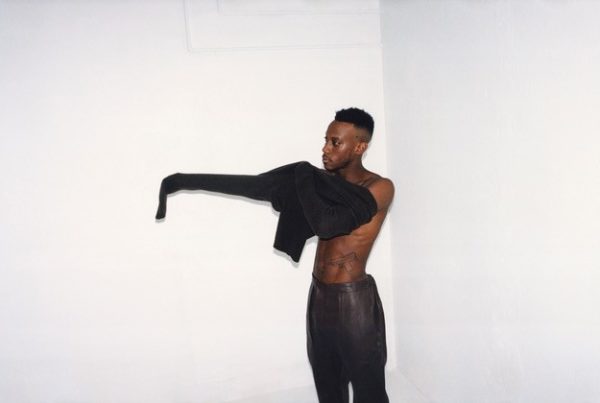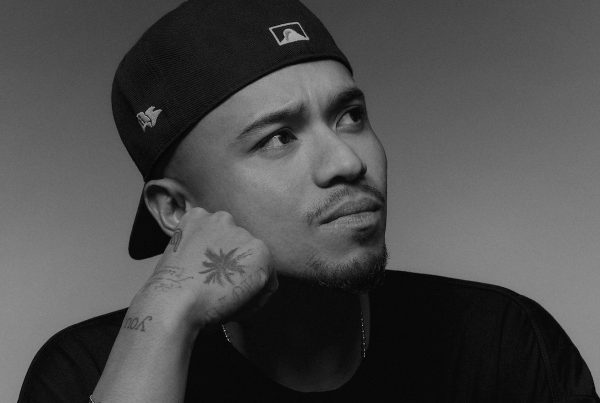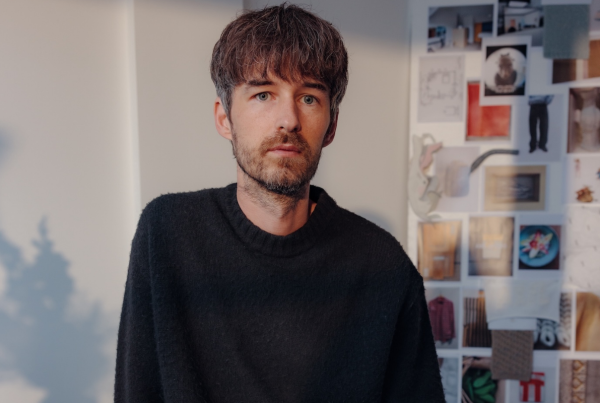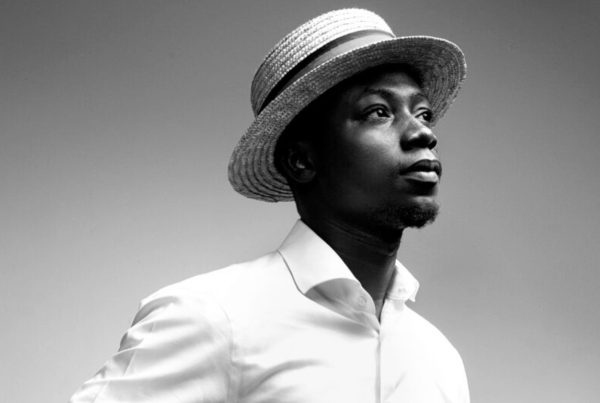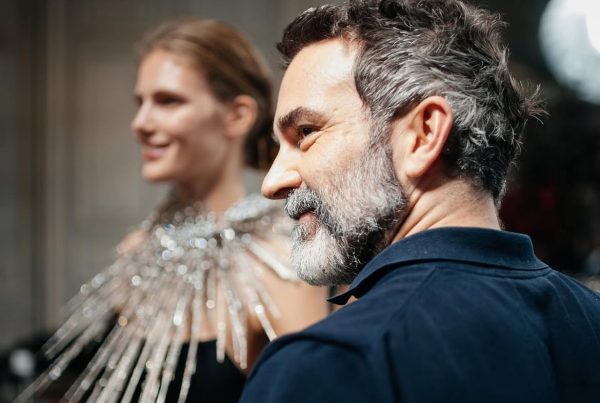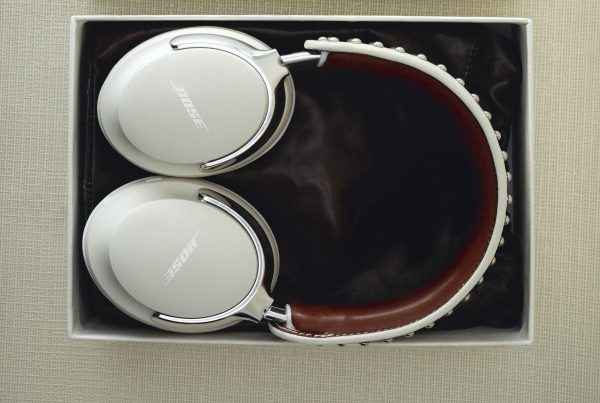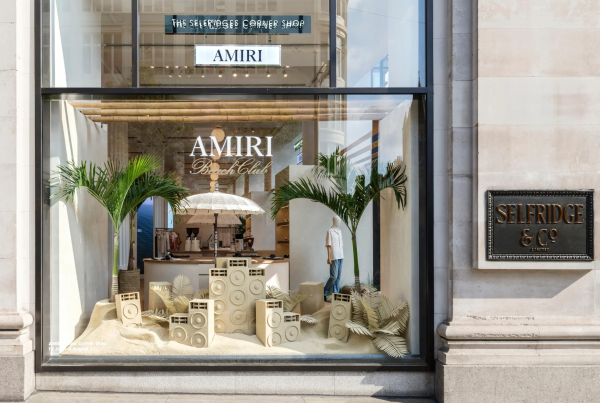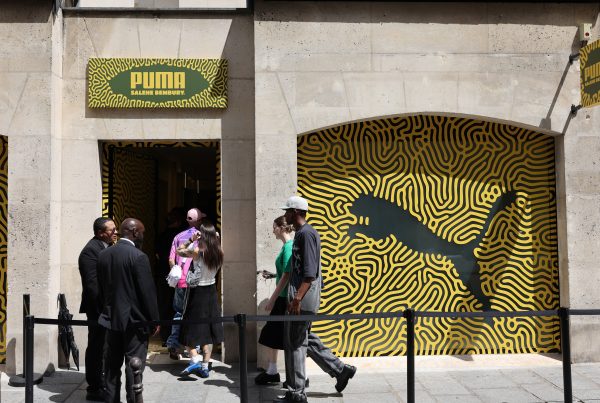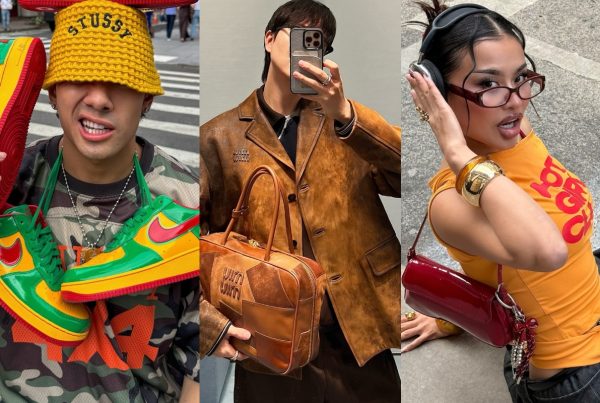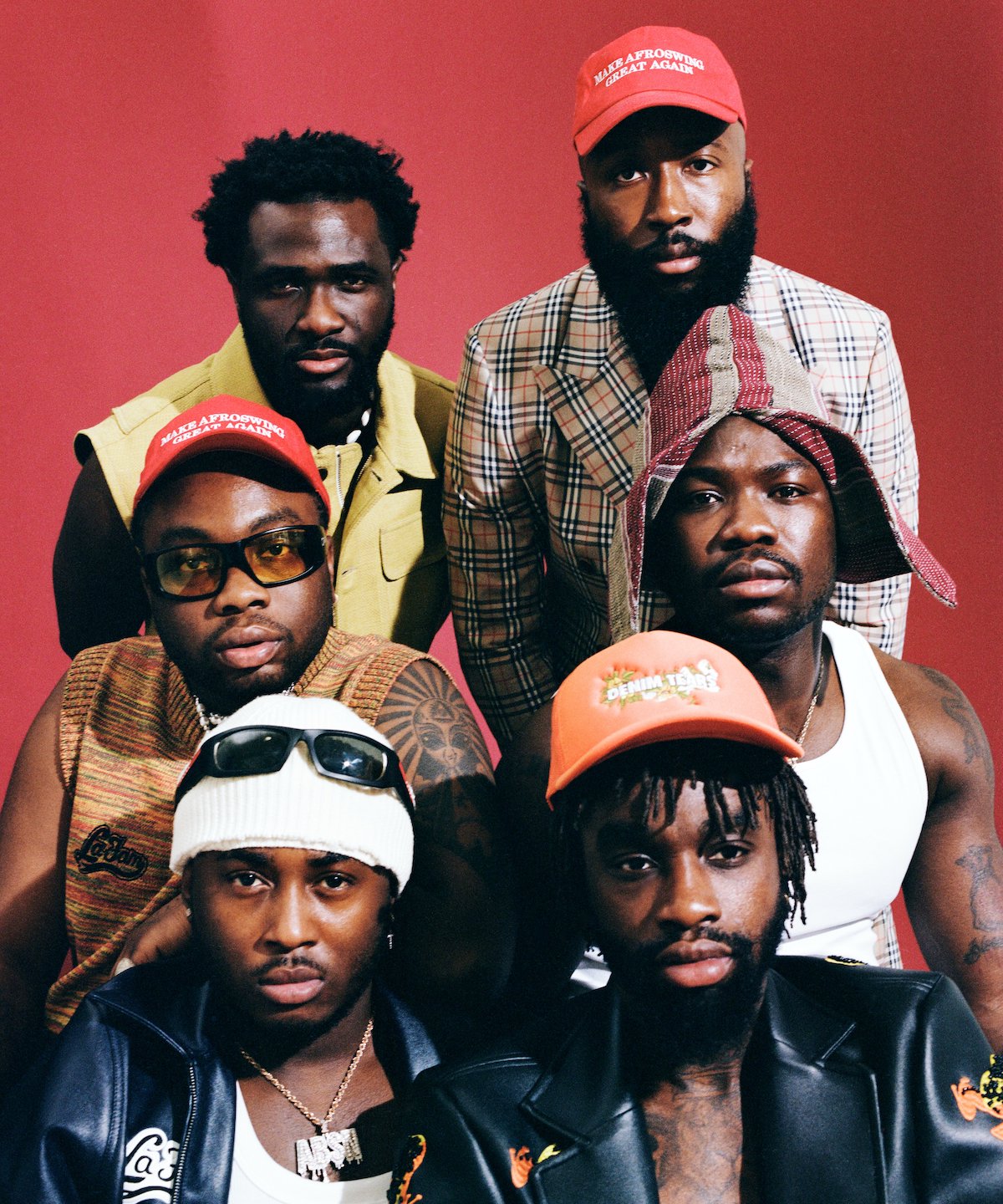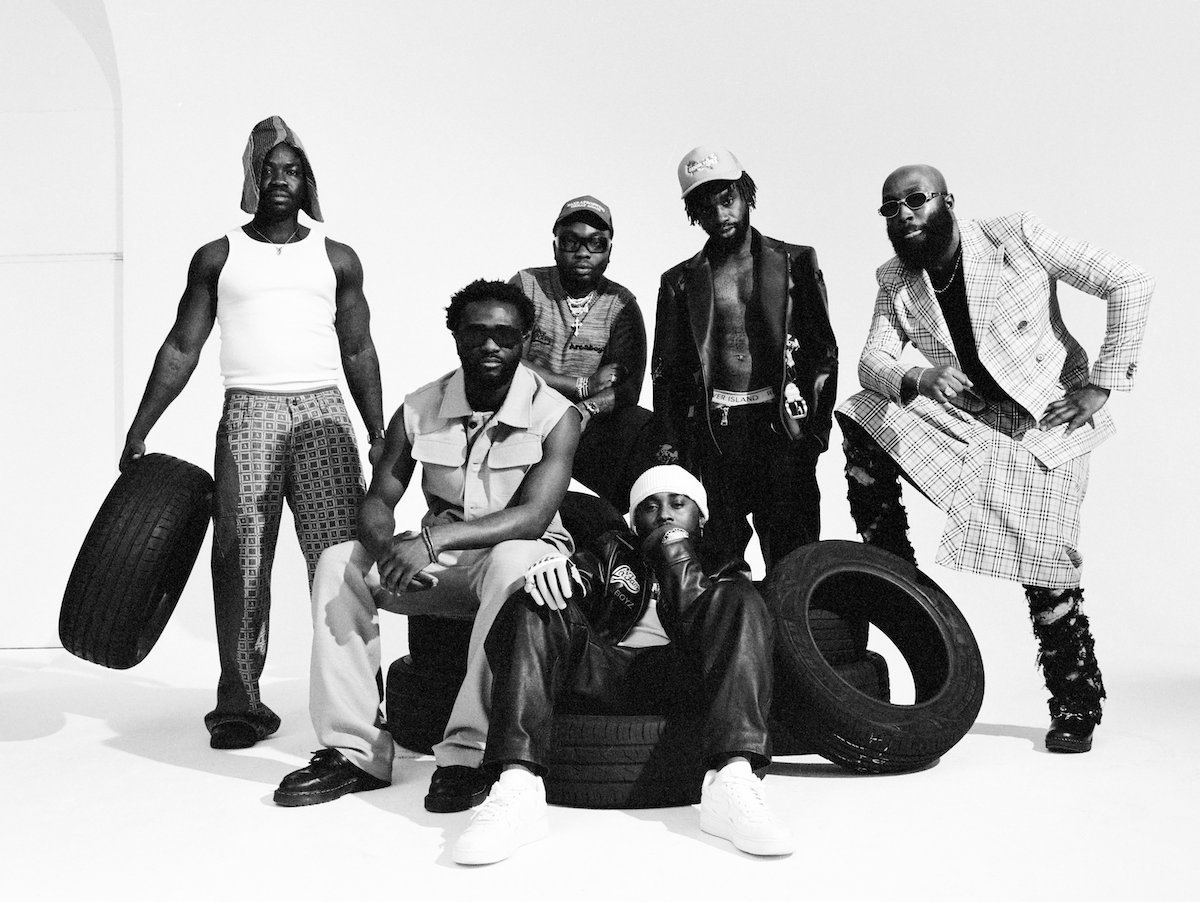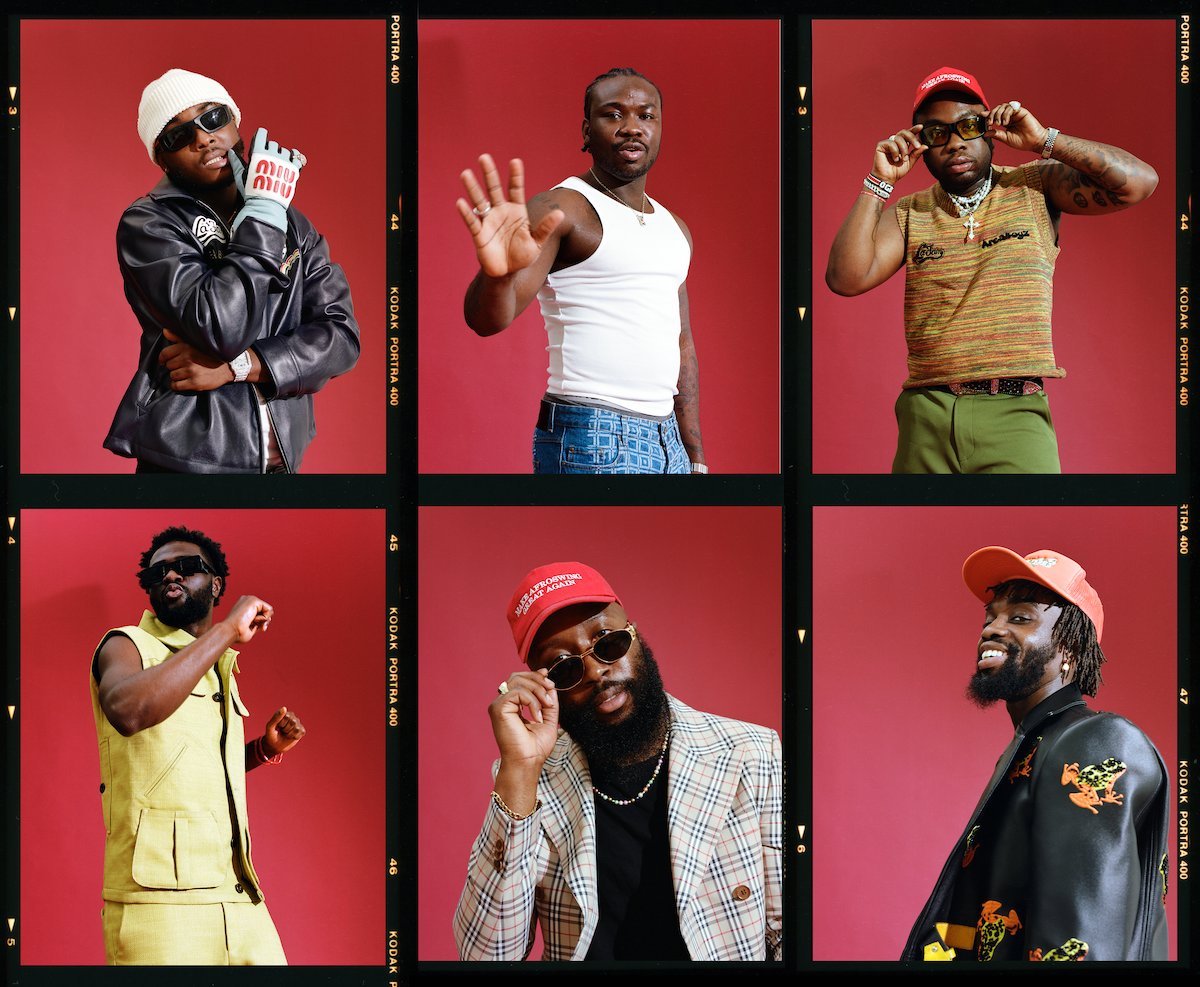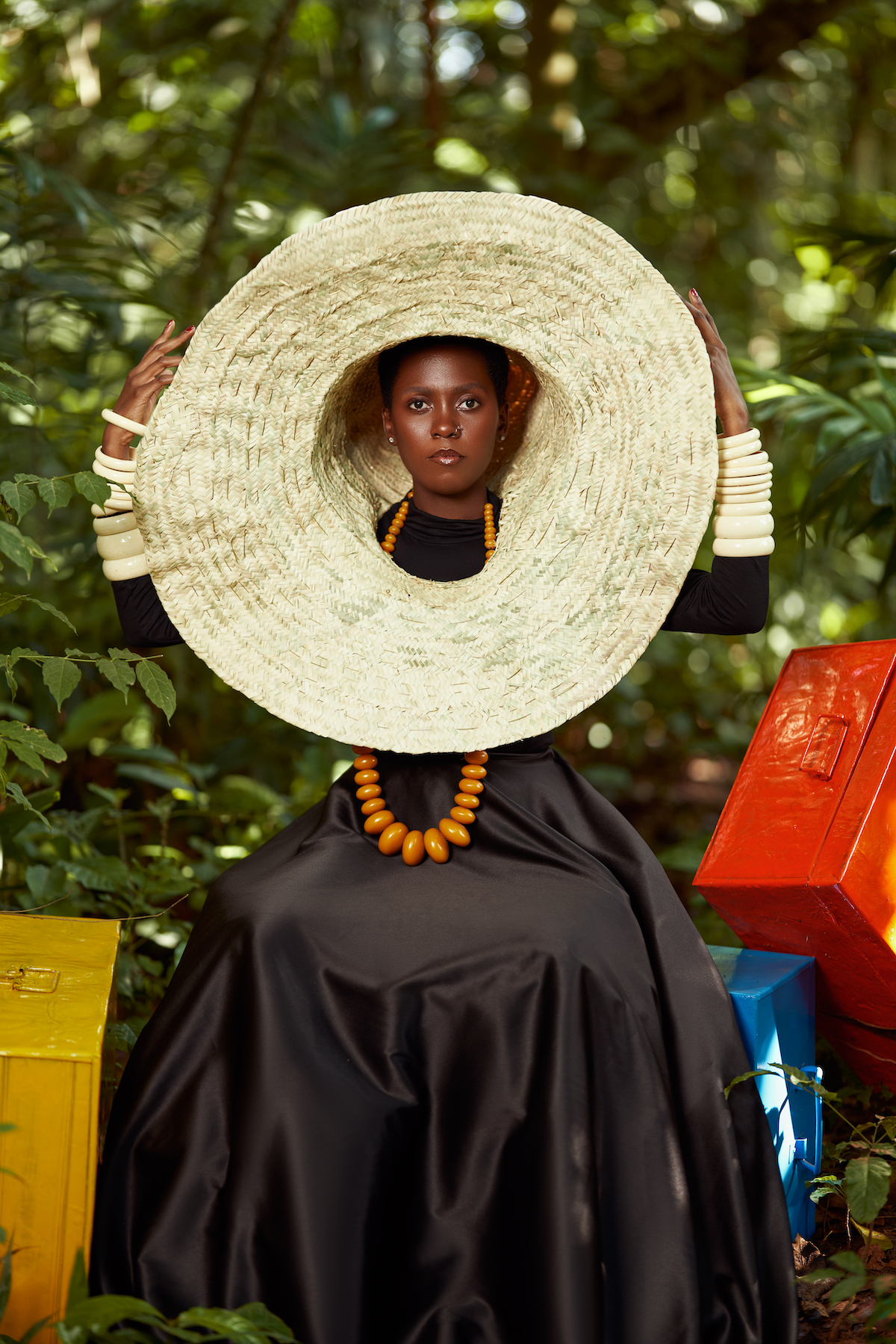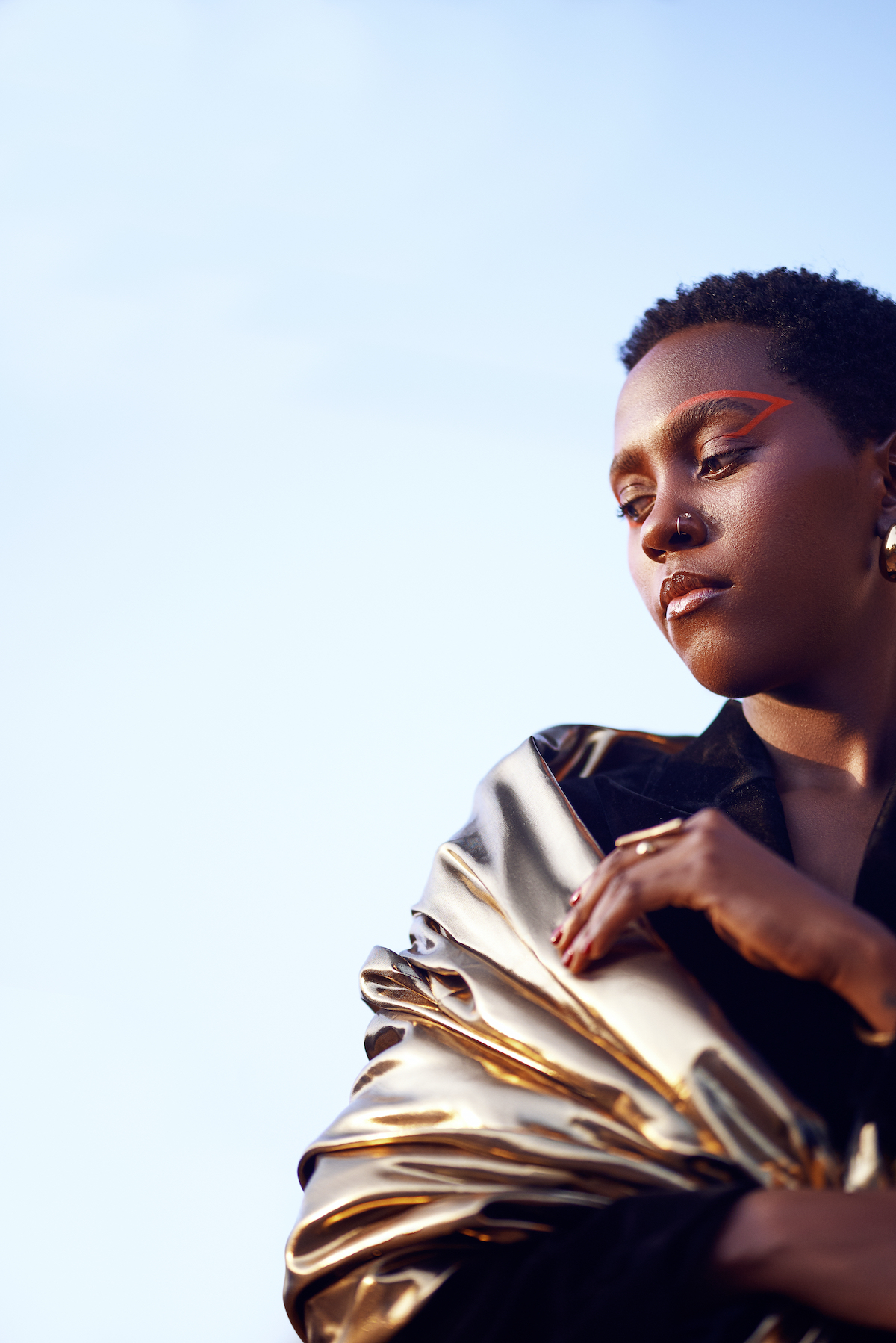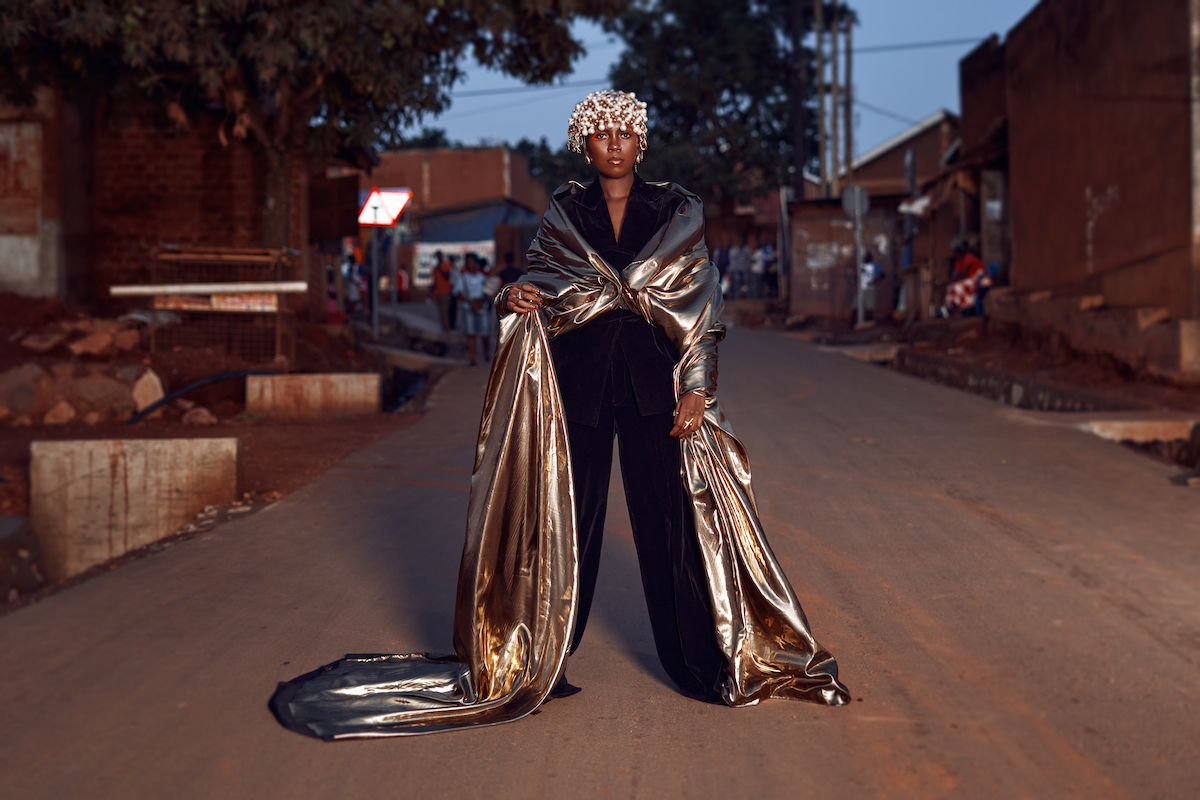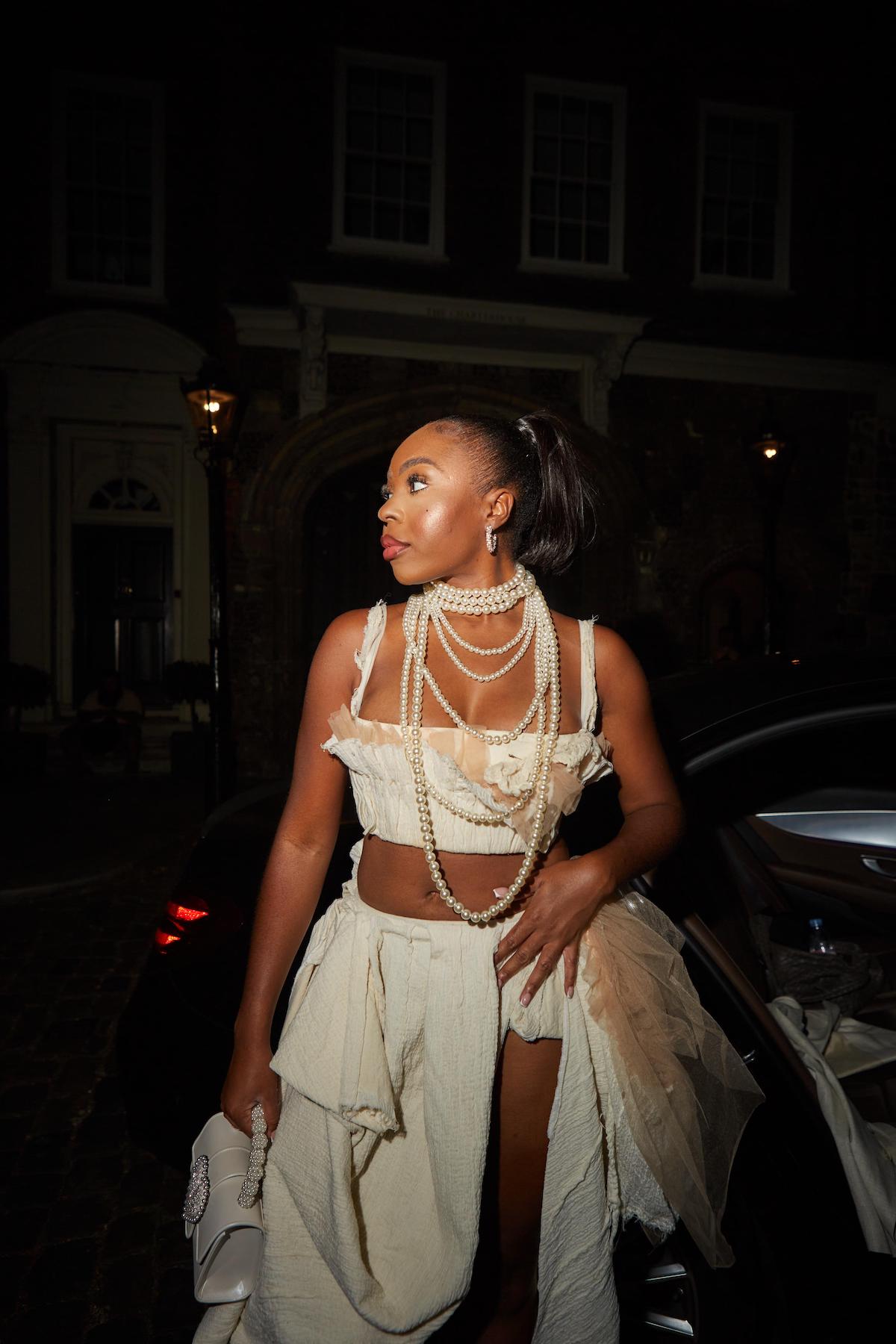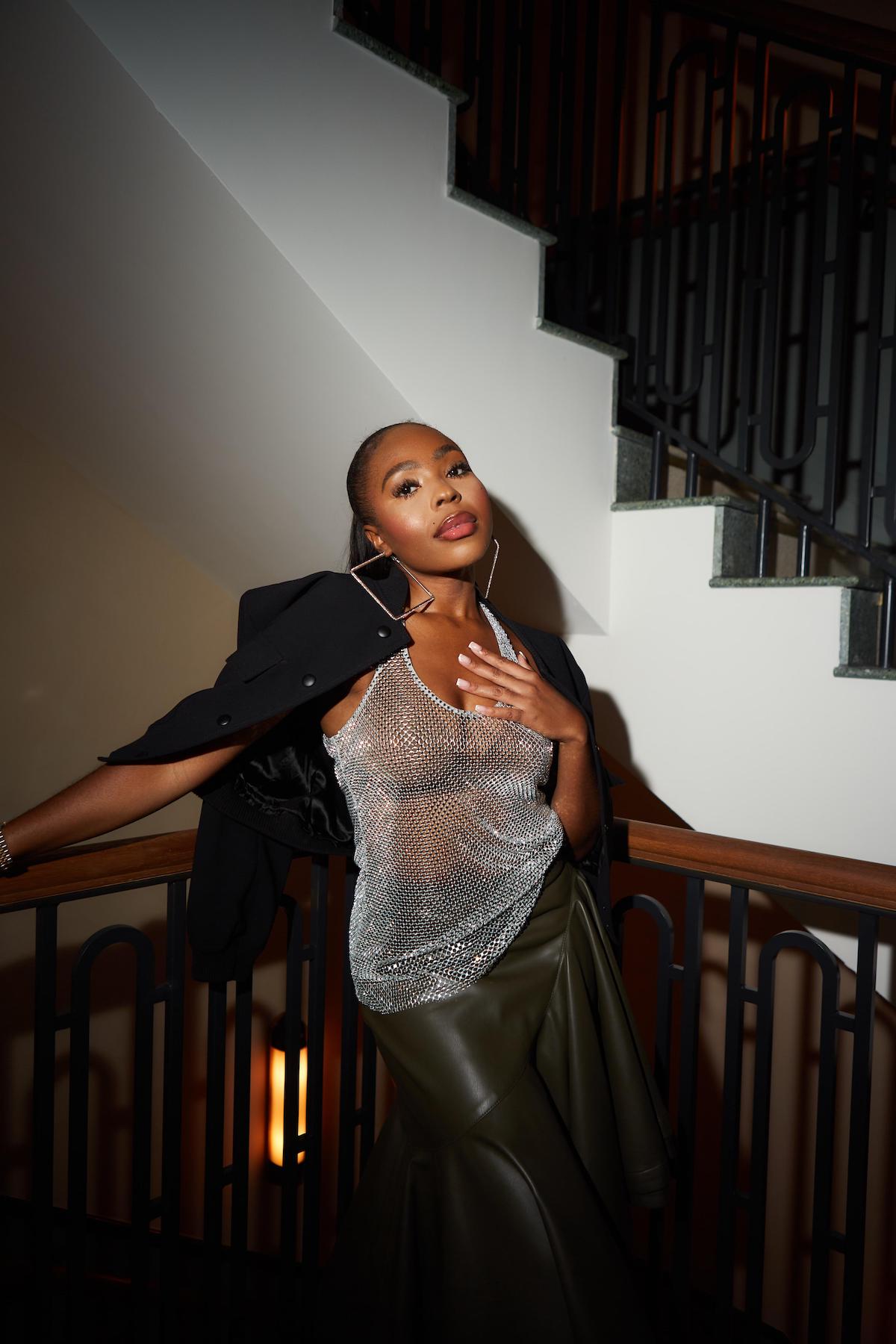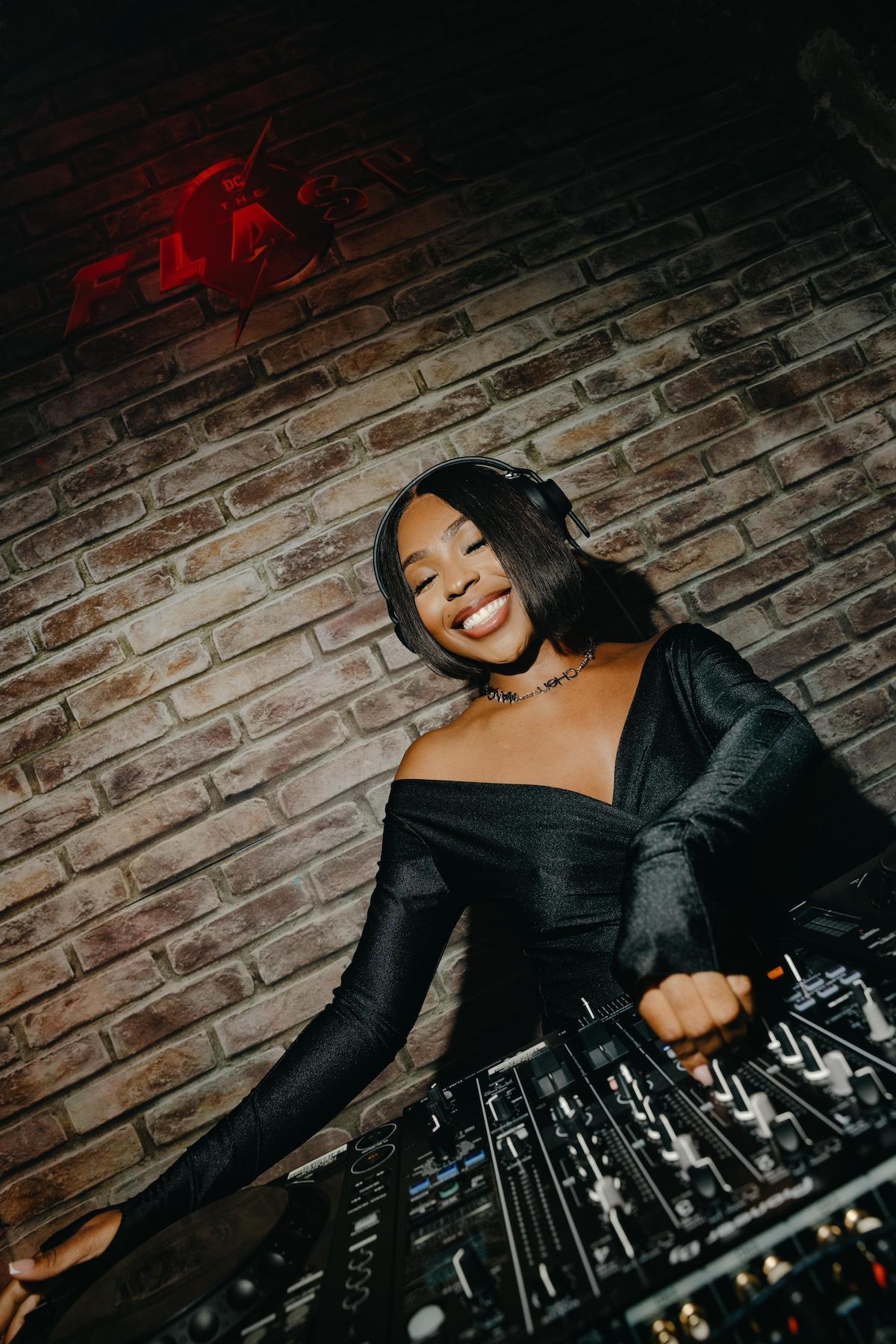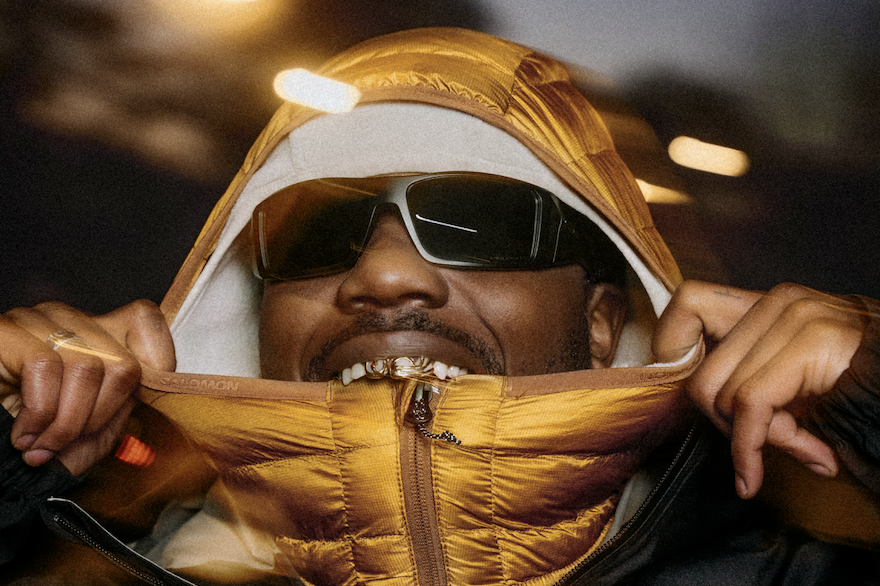PAUSE HIGHLIGHTS:
Africa’s Impact on Music
Africa as One.
When one thinks of Africa, one should think of its vibrant tapestry of beauty, creativity, and artistic expressions that captivate and inspire.
With its pulsating rhythms, rooted in centuries-old traditions, and the contemporary fusion that defines its modern sound, PAUSE Magazine explores Africa’s music scene – unraveling its treasures and the individuals that make it a global goldmine.
In the dynamic landscape of music, Africa’s impact is indispensable and deservedly celebrated, which is why we aim to provide a platform for its artists and stories to be shared with the world.
- NSG -
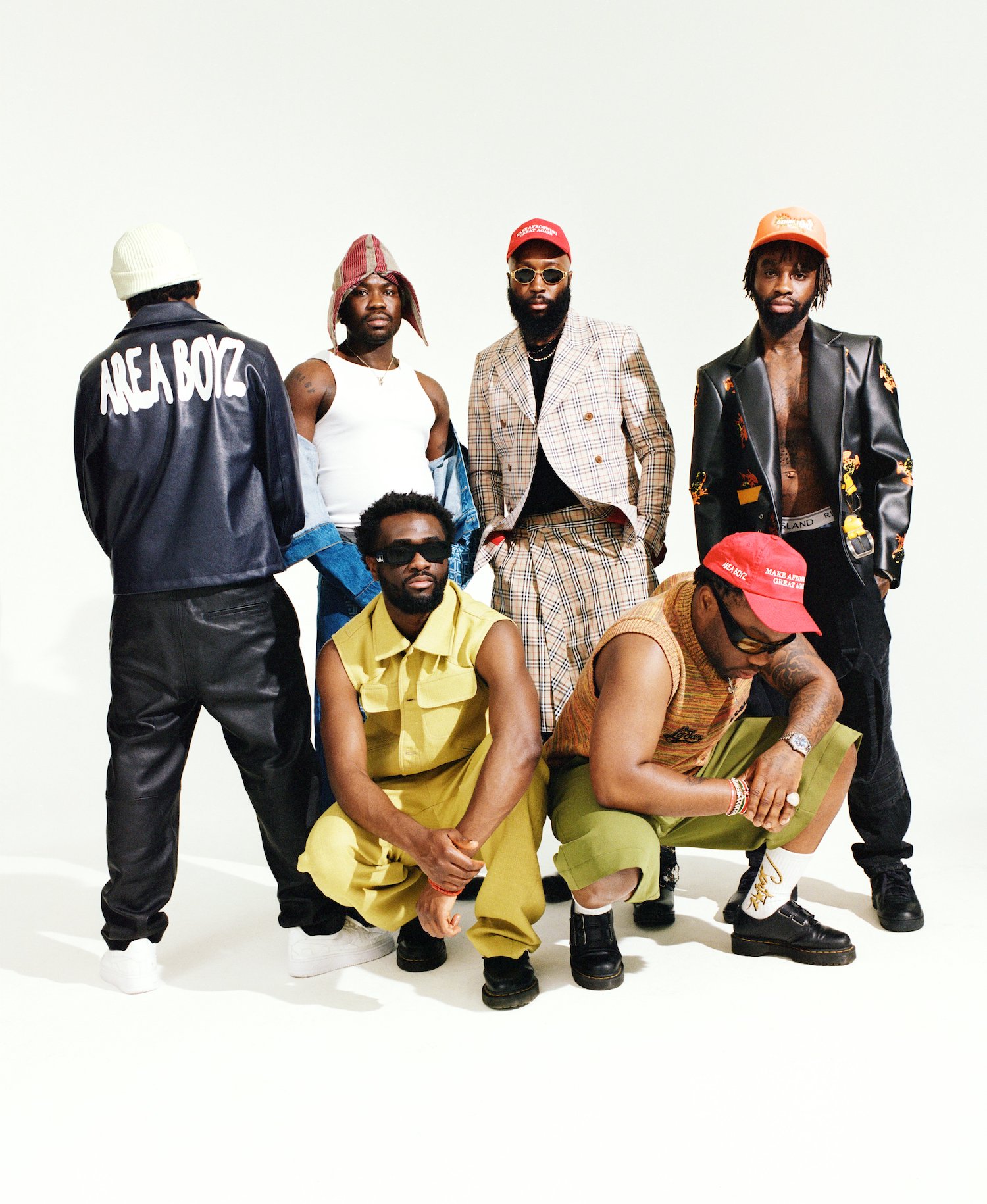
PHOTO CREDIT: NSG
Name: We’re NSG – a brotherhood made up of Mxjib,Dope, Papii Abz, Mojo, OGD & Kruddz.
Where are you from?: Hackney (East London), Ghana & Nigeria.
Instagram: @nsg_music
In what ways has music helped to shape and define African culture and identity in 2023?
Mojo: music played an important part in shedding light on our culture and making other countries feel like they could embrace our culture, through bringing feel good vibes for parties and also through the style of the artists, because fashion is also a big part of our identity as Africans
How does the global perception of African music impact its representation in the music industry?
Papii Abz: the global perception of African music brings a positive vibration within the music industry as it’s a win for everybody. I also see it as a motivational push because it makes everyone go harder to deliver quality music.
Do you think the fusion of traditional and modern music in Africa has contributed to the diversity and richness of the creative scene? If so, how?
Mxjib: yes , incorporating the traditional vibe adds an extra sauce to the music, which makes the music feels more authentic.
Share one word that describes Africa to you.
OGD: Roots
- Pheelz -
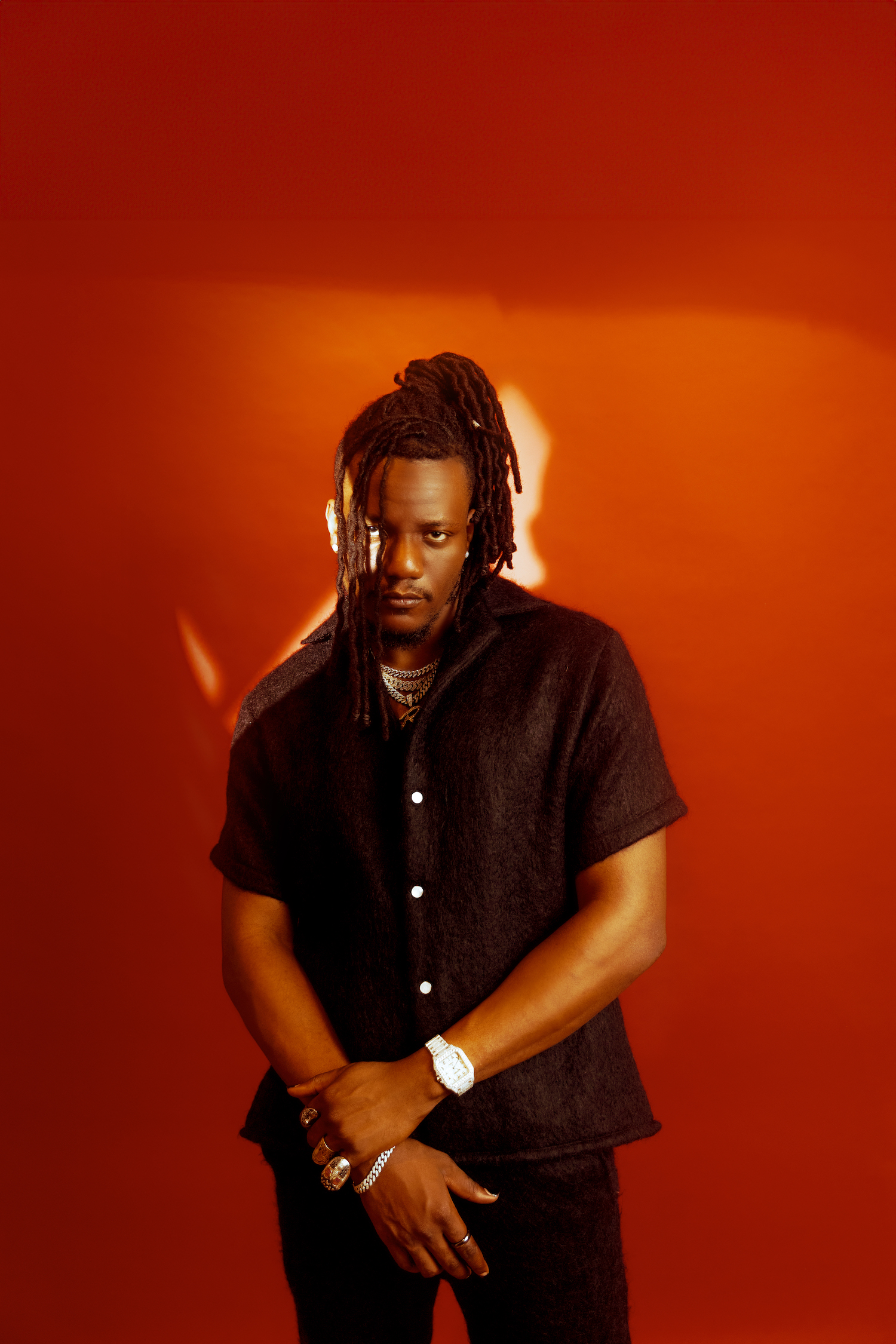
PHOTO CREDIT: Williams Peters
Name: My name is Phillip Moses, also known as Pheelz… also known as Mr. Producer… also known as Tribe Leader.
Where are you from?: I’m from Nigeria. I was raised in Lagos State.
Instagram: @pheelzgood
In what ways has music helped to shape and define African culture and identity in 2023?
I think music has helped shine more light on the culture and art we have to offer the world. I believe music is going to keep helping us do that. Music has also helped show our emotion, spirit, dance, groove, and high vibration to the world.
How does the global perception of African music impact its representation in the music industry?
We have a role to teach the world what the perception should be. African music is more than what the world sees it to be right now, there is so much more that it can accomplish and become. So, it’s on every single African artist out there to teach the world where we are coming from, what our story is, and what our abilities are. It’s up to us (Africans) to teach and show the world how amazing African music is.
Do you think the fusion of traditional and modern music in Africa has contributed to the diversity and richness of the creative scene? If so, how?
Yes, I believe it has. Because African music comes first from spirit. It also comes from the collaboration of sounds, and I for one am a product of that. Every single piece of music I make now is a combination of accumulated experiences, from growing up to listening to the classics like Fela. Listeners of Fela’s music know he was influenced by jazz and funk. For me, African music is a rich blend of the African spirit and genres from around the world.
Share one word that describes Africa to you.
Beautiful. In every sense of the word. Africans are beautiful. Africa is beautiful.
- Azawi -
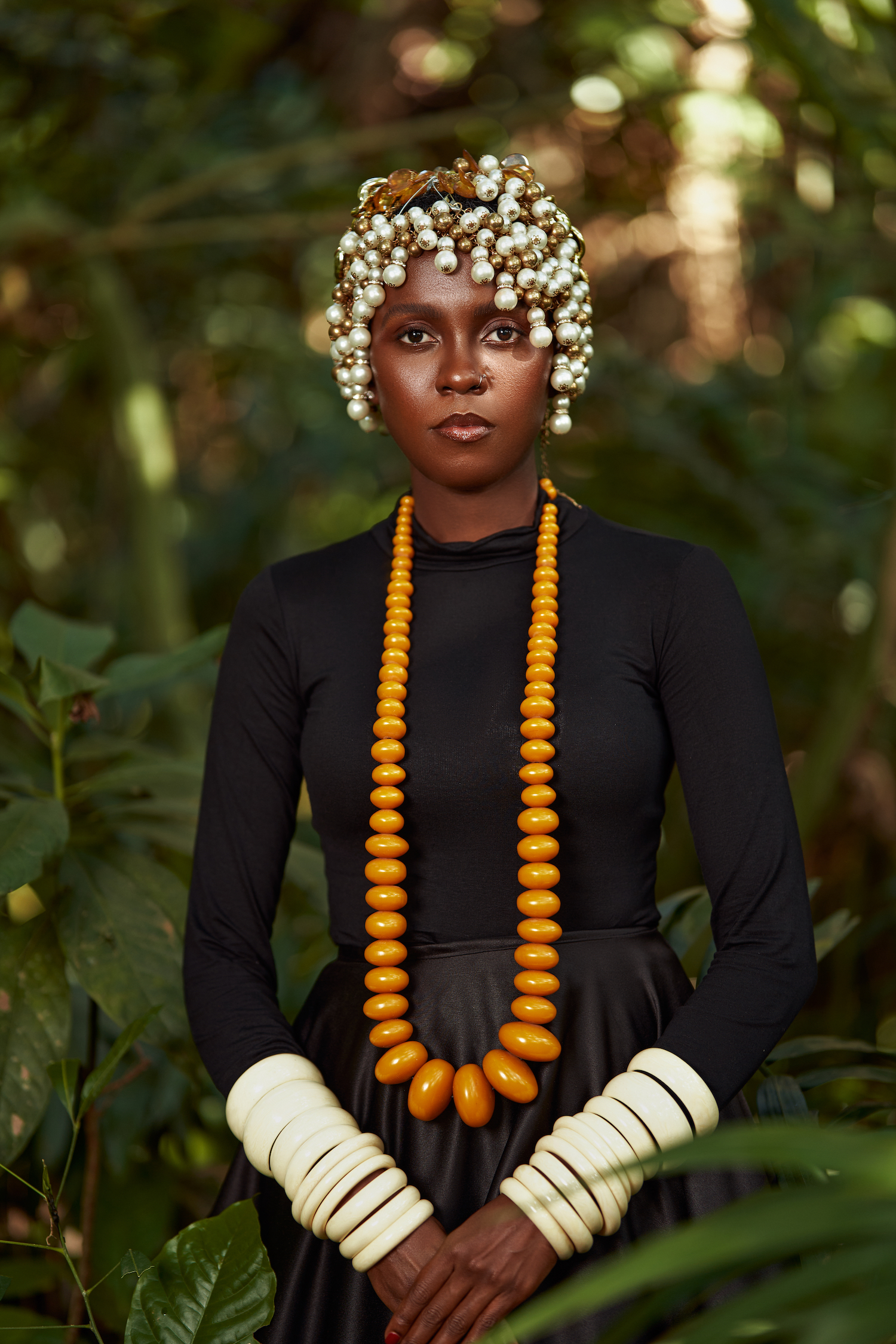
PHOTO CREDIT: Azawi
Name: Priscilla Zawedde, also known as Azawi.
Where are you from?: Kampala, Uganda.
Instagram: @azawaiofficial
In what ways has music helped to shape and define African culture and identity in 2023?
Traditionally, music has always been a part of our lives as Africans. It doesn’t matter whether it’s a sad or happy moment. The intersection of traditional sounds, modern genres, and the evolving music industry has contributed to the diversity of the African cultural landscape.
Music in Uganda and Africa has been a powerful tool for preserving cultural heritage. Artists often draw inspiration from traditional rhythms, instruments, and storytelling techniques, helping to pass down cultural values to younger generations.
How does the global perception of African music impact its representation in the music industry?
In recent years, there has been a shift in the way the world views and engages with African music. African music has finally gained recognition for its diverse and rich musical traditions. This has led to a greater inclusion of African genres, artists, and sounds in the global music landscape, contributing to a more diverse and inclusive global industry.
Do you think the fusion of traditional and modern music in Africa has contributed to the diversity and richness of the creative scene? If so, how?
Yes, by blending elements from the past and present we now have a musical landscape that is dynamic, innovative, and reflective of the continent’s multi-cultural heritage and history. The fusion of traditional and modern elements has broadened the appeal of African music on the global stage. Audiences worldwide are drawn to the unique sounds that emerge from this fusion, leading to increased recognition and appreciation for African artists and their creative contributions.
Share one word that describes Africa to you.
Magical.
Darkoo
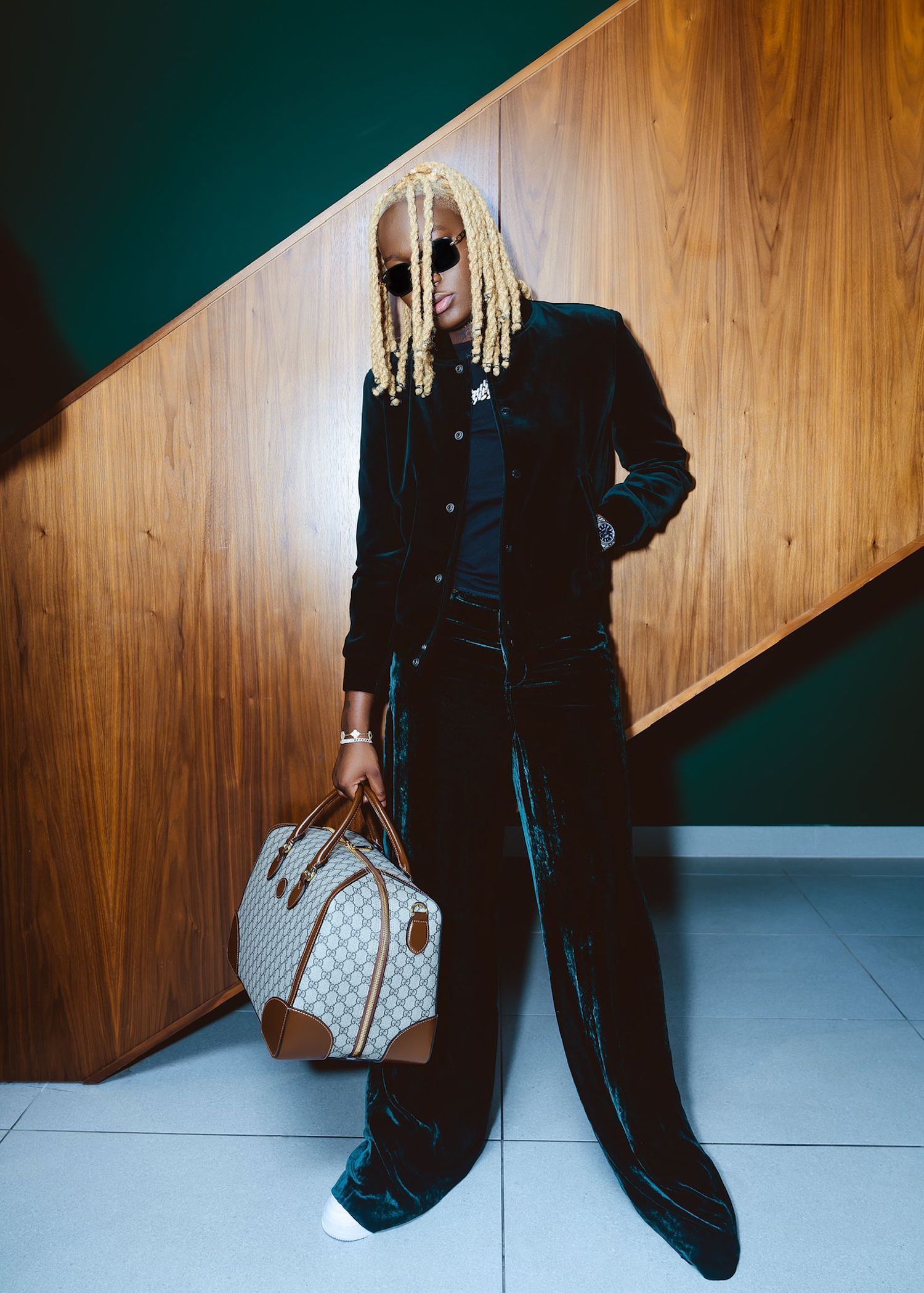
PHOTO CREDIT: Darkoo
Name: Darkoo.
Where are you from?: Nigeria.
Instagram: @darkoo
In what ways has music helped to shape and define African culture and identity in 2023?
It’s massively helped. The core essence of our music has always been present and we have never tried to conform or dilute our sound, African culture is being more respected in the western world, along with the music it’s being embraced globally and finally we are now getting the flowers that we’ve always deserved.
How does the global perception of African music impact its representation in the music industry?
The impact is crazy. The music industry is now open to exploring who we are musically and amalgamating themselves accordingly, to fit in with our sound and not vice versa. It’s also evident with the new generation of African kids; they are unapologetically African and proud of their culture.
Do you think the fusion of traditional and modern music in Africa has contributed to the diversity and richness of the creative scene? If so, how?
We’re all going back to our musical roots and modernising it into our liking. It feels very nostalgic to hear traditional African music, fused for our modern taste. Our sound is deeply rooted in history and in the stories that were told before us. We as a continent have such a respect for the origins of our sound, which is why I think you’ll always hear elements of it in any genre of African music, regardless of the generation that’s creating it.
Share one word that describes Africa to you.
Rich…rich in culture…rich in passion, rich in everything!
Mercedes Benson
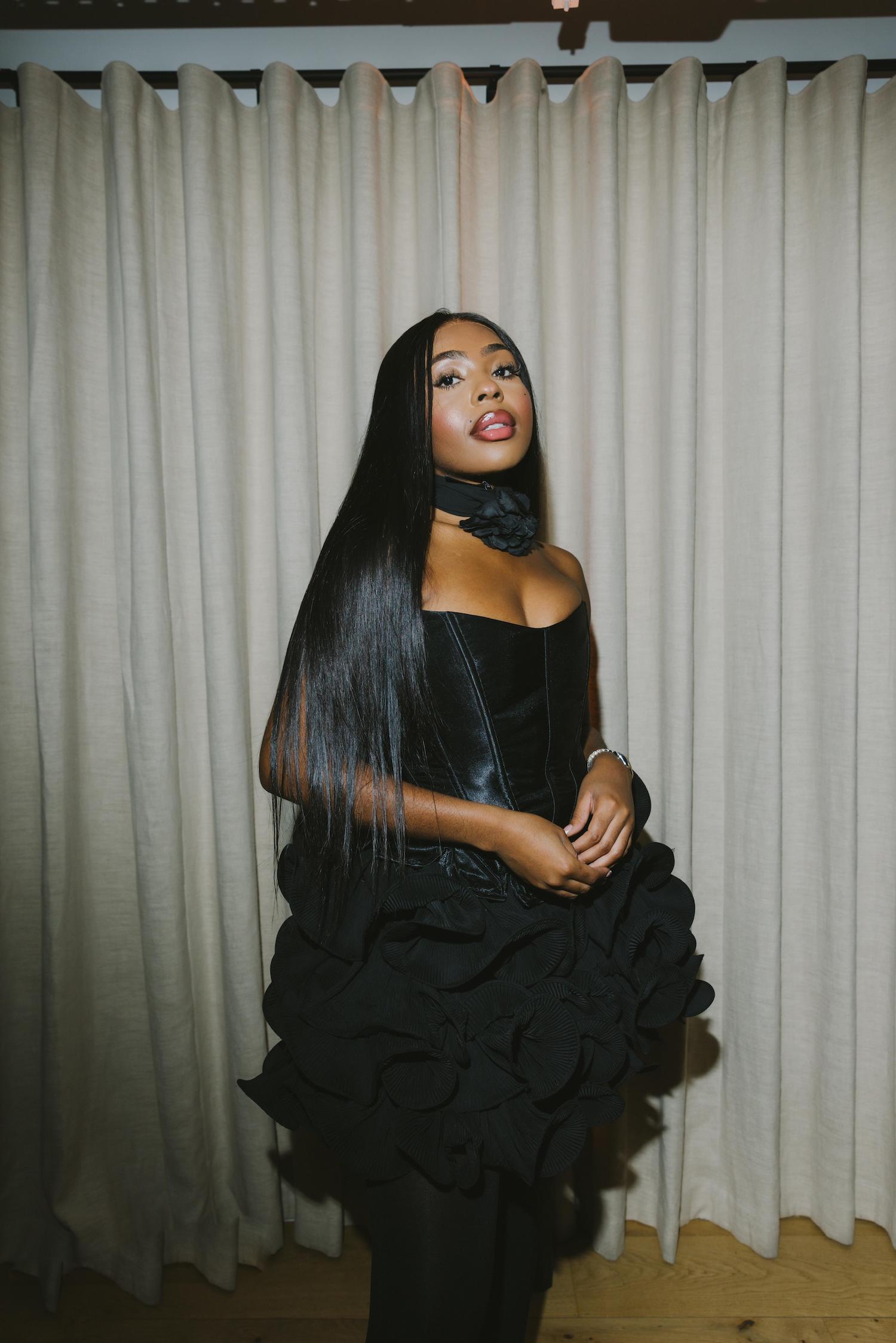
PHOTO CREDIT: Mercedes Benson
Name: Mercedes Benson.
Where are you from?: born & raised in North London, but of Nigerian descent.
Instagram: @mercedesfbenson
In what ways has music helped to shape and define African culture and identity in 2023?
Music is at the heart of African culture, and honestly, the continent as a whole has been the breeding ground for so many talented individuals who are pioneering popular culture as we see it today. I think, in 2023, the global recognition that Afrobeats is gaining in the global music market is undeniable. Our artists are being nominated at the Grammys, performing at the VMAs, taking over Asia (Rema as an example), and infiltrating football associations – we are everywhere, and it feels good to see our music, a major export of ours, being recognized and enjoyed around the world. Afrobeats is shaping Africa as a strong leader in the entertainment space, as we know it.
How does the global perception of African music impact its representation in the music industry?
The global perception of African music is crucial in redefining Africa as a leading force in the space. Although we are still overcoming structural, economic, and impoverishment challenges, it’s important to show the world that it is not the only narrative to come out of Africa. We are educated and resilient, and on top of that, there are a plethora of self-sufficient individuals both in the continent and in the diaspora innovating in our countries. There is wealth in Africa in various forms.
Do you think the fusion of traditional and modern music in Africa has contributed to the diversity and richness of the creative scene? If so, how?
Most definitely. If you look at what is at the core of our music, it’s the drums. You hear those rhythmic pulses across all the genres that have come out of Africa – Afrobeats and Amapiano, to name the leading two at the forefront. I think it’s important, from an Afrobeats POV, for us not to forget the forefathers that paved the way for the sounds we hear today – Fela Kuti, Sunny Ade, to name a few.
Share one word that describes Africa to you.
Cheeky, I’ll have to say two: THE FUTURE.
Rapcha
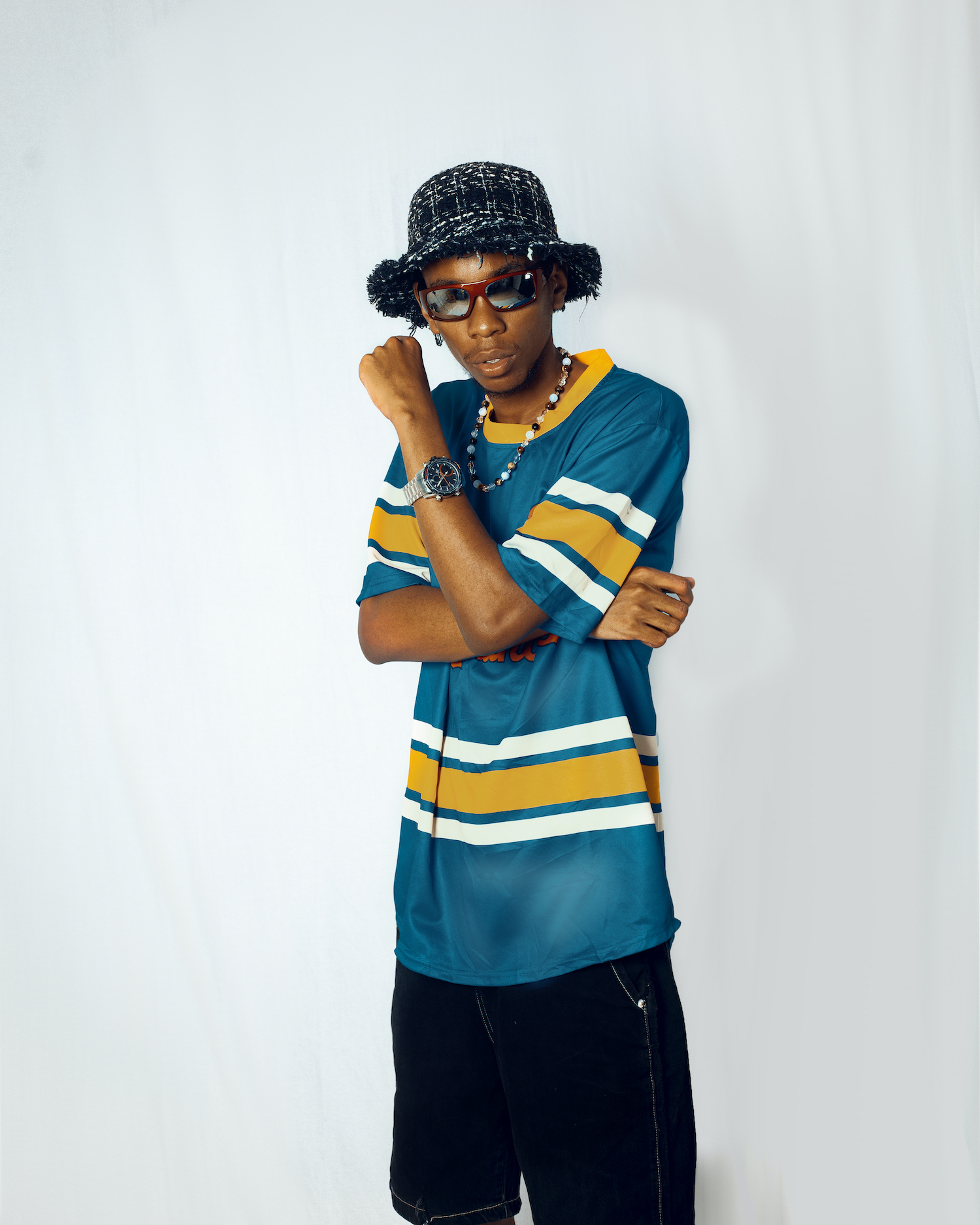
PHOTO CREDIT: Rapcha
Name: Rapcha.
Where are you from?: Tanzania.
Instagram: @rapcha_tz
In what ways has music helped to shape and define African culture and identity in 2023?
Music is a big part of Africa in 2023, blending traditional and modern sounds. It reflects the diverse culture, expressing joy, challenges, and our dreams. Artists are sharing their stories, bringing people together and making Africa’s voice heard globally
How does the global perception of African music impact its representation in the music industry?
When the world sees African music positively, it opens doors for more opportunities. A positive perception can lead to collaborations, international recognition, and a broader audience. So, the global view plays a crucial role in shaping how African artists are embraced and celebrated worldwide.
Do you think the fusion of traditional and modern music in Africa has contributed to the diversity and richness of the creative scene? If so, how?
Yes, fusion of traditional and modern music in Africa makes the creative scene more interesting. It adds different flavors and colors to the music, making it more special.
Share one word that describes Africa to you.
Home.
Gyakie
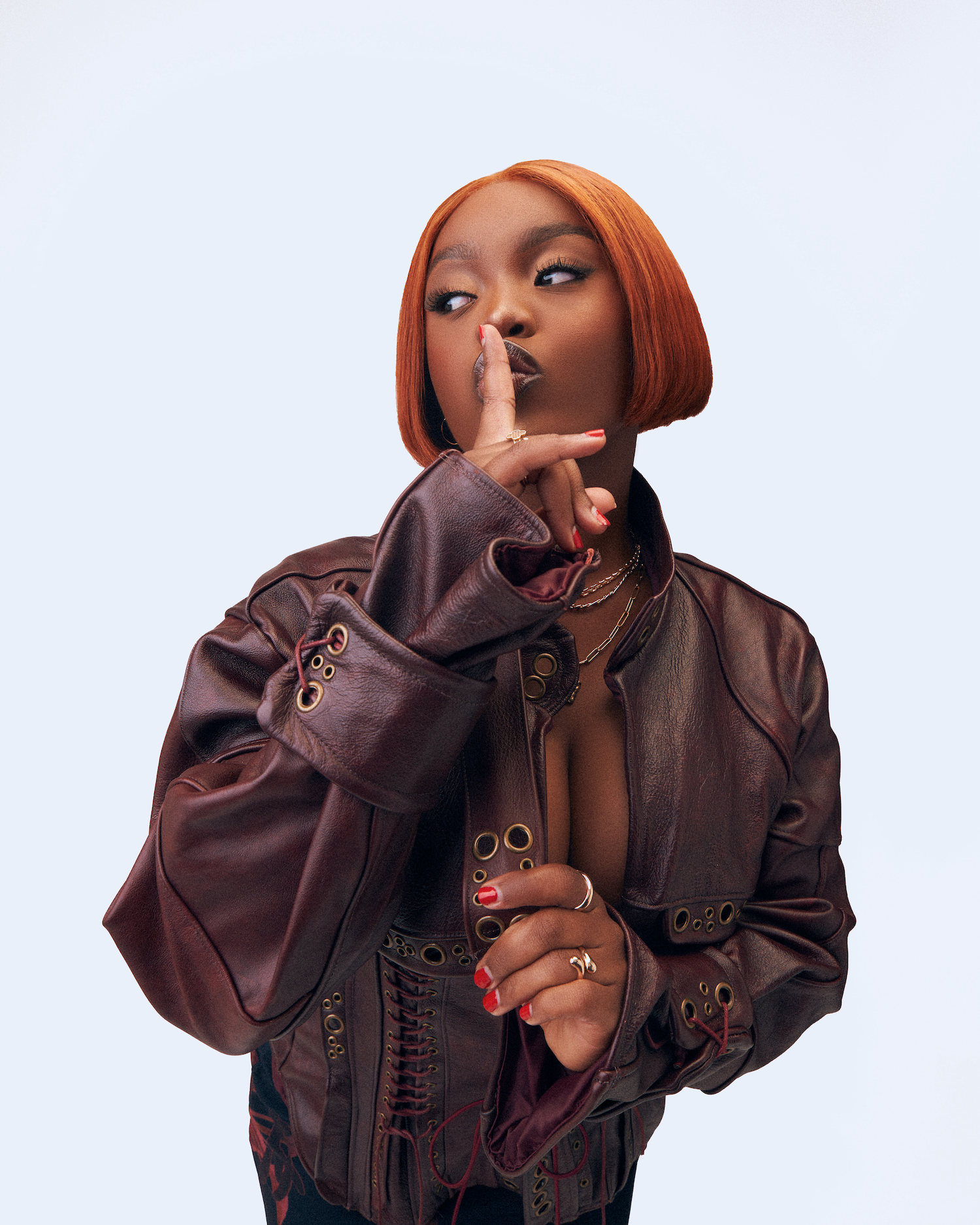
PHOTO CREDIT: Gyakie
Name: Gyakie.
Where are you from?: Kumasi, Ghana.
Instagram: @gyakie_
In what ways has music helped to shape and define African culture and identity in 2023?
Music has helped to shape and define the African culture in numerous ways. some of which includes the local language that is used in the song lyrics, the display of African costumes, food, culture in music videos, the use of African instruments in song productions, etcetera. This has brought so much attention and interest to the African culture and has also served as a big platform to promote our identity.
How does the global perception of African music impact its representation in the music industry?
First of all, what is the global perception of African music? I believe African music is perceived globally as a positive sound. In terms of lyrics, music videos amongst other elements. that alone is a major catalyst to propagate the sound further. The positivity we spread is the reason we can see all these collaborations and that’s why we are where we are now with the sound. The global music industry has accepted the African sound, hence the inclusion of the sound in major award platforms globally.
Do you think the fusion of traditional and modern music in Africa has contributed to the diversity and richness of the creative scene? If so, how?
Yes I do. I believe the fusion has added up to another rendition of what we already consume but much better. It has broadened the creativity of creatives where people are now able to fuse different sounds and still make it feel African. Takes a genius to do that.
Share one word that describes Africa to you.
Unique.
Kizz Daniel
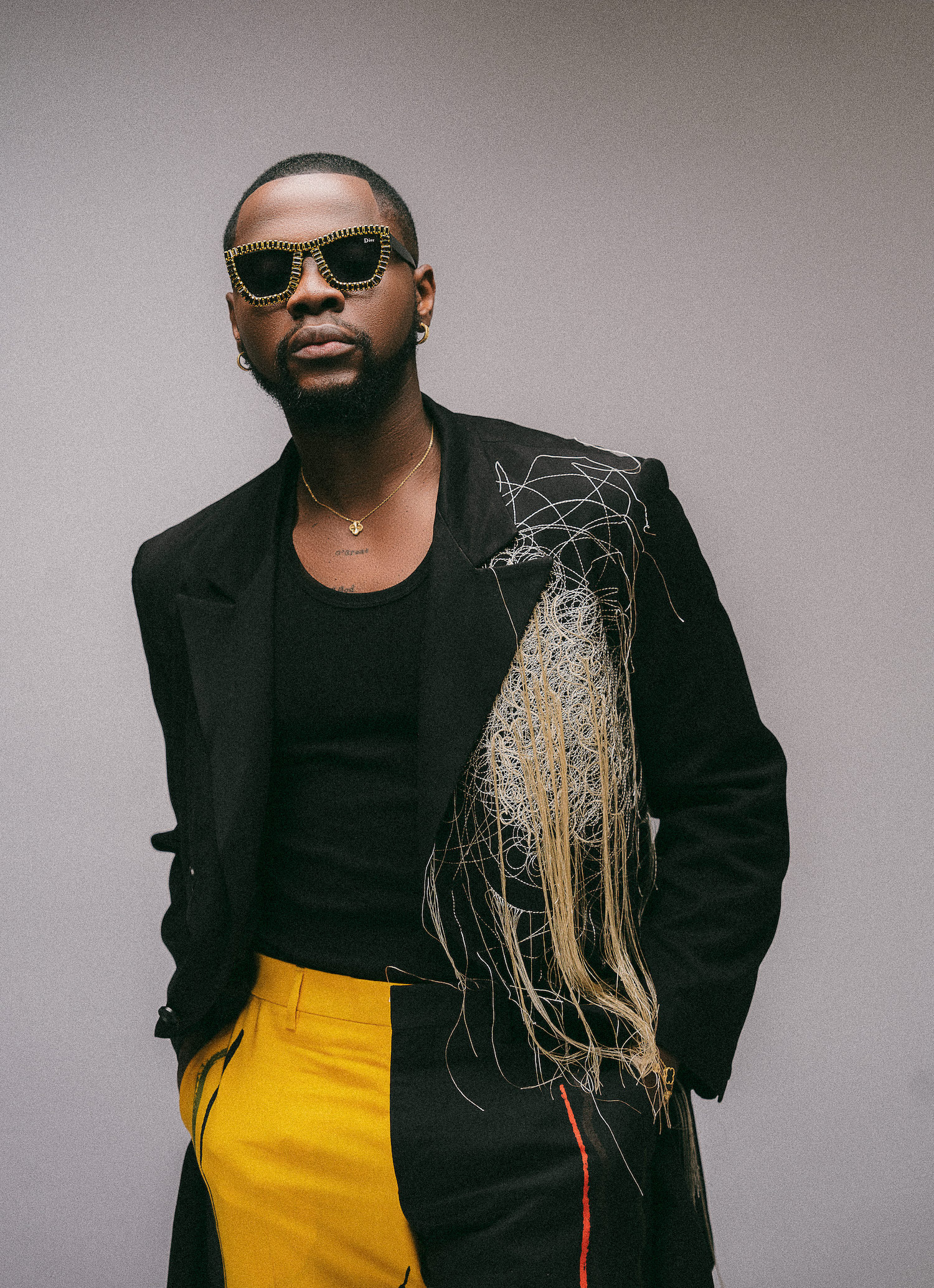
PHOTO CREDIT: Kizz Daniel
Name: Kizz Daniel.
Where are you from?: Abeokuta, Ogun State, Nigeria.
Instagram: @kizzdaniel
In what ways has music helped to shape and define African culture and identity in 2023?
It’s evident how music remains an important driver of cultural development as well as one of identity expression. It is a dynamic storyteller reflecting the African challenges, and victories. Unlike before, African artistes now control the narrative through their music, there’s better expression of our culture through several genres across the continent and our music providse a source for the cultural pride that unites our people locally and in the diaspora. Music is essentially a cultural bridge, connecting generations and contributing to a vibrant, evolving African identity.
How does the global perception of African music impact its representation in the music industry?
Obviously, positive perceptions open doors for global collaborations and audiences. It allows us to bring our unique style to the world stage and showcase the richness of the African culture through our music. However, stereotypes can limit opportunities. So, it’s crucial to control the narrative and showcase the diversity and richness of African music to challenge certain misconceptions. The more the world embraces our sound, the better our representation is on the global stage.
Do you think the fusion of traditional and modern music in Africa has contributed to the diversity and richness of the creative scene? If so, how?
Most certainly! Fusing traditional and modern music together goes a long way in adding a rich tapestry to our creative landscape. We get to stay true to our roots, our heritage while evolving with the times. So as much as we are preserving our cultural roots, our music can also resonate globally and create a unique sound and evidently, it’s been appreciated greatly in recent times.
Share one word that describes Africa to you.
Home.
King Promise
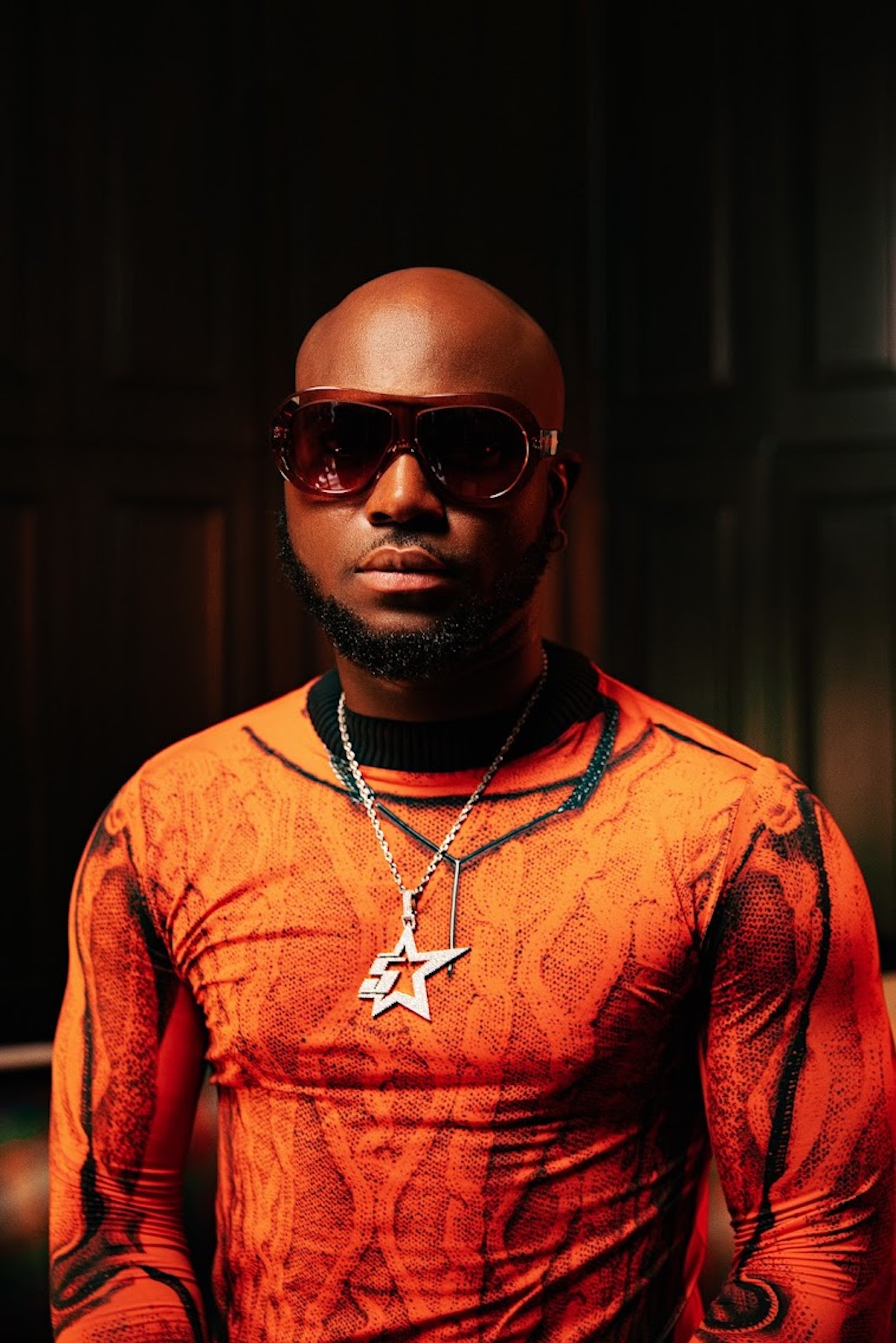
PHOTO CREDIT: King Promise
Name: King Promise.
Where are you from?: Accra, Ghana.
Instagram: @iamkingpromise
In what ways has music helped to shape and define African culture and identity in 2023?
For me personally, music continues to play a crucial role in shaping and defining African culture and our identities. It’s a source for us to share our sacred history, traditions, share our values, and most importantly express the way society is changing. Our music preserves our heritage but also allows unity and connectivity among communities.
How does the global perception of African music impact its representation in the music industry?
The global perception of African music has evolved significantly. It is now being appreciated and celebrated. As an artist from Ghana, it’s amazing to see countries across the globe listening and enjoying my music. Collaborations are an amazing way to learn about different cultures and I’m so lucky to do this through music. The appreciation of African music’s cultural impact has provided an organic pathway for African musical traditions within the industry. Although we have evolved we still have major changes to make within the industry to make sure African artists get the respect and recognition they deserve.
Do you think the fusion of traditional and modern music in Africa has contributed to the diversity and richness of the creative scene? If so, how?
The fusion of traditional and modern music in Africa has contributed heavily to the creative scene. By blending old and new musical elements we can continue to create our own sound and connect with our audiences. My mentors who created traditional Ghanaian music continue to inspire the music I make today. All of us Africans in the current creative space have created a unique fusion that not only preserves our cultural heritage but also drives it forward; our traditions are important. This same fusion has widened the scope for African music, attracting cross cultural audiences in both local and international territories.
Share one word that describes Africa to you.
Home.
Lojay
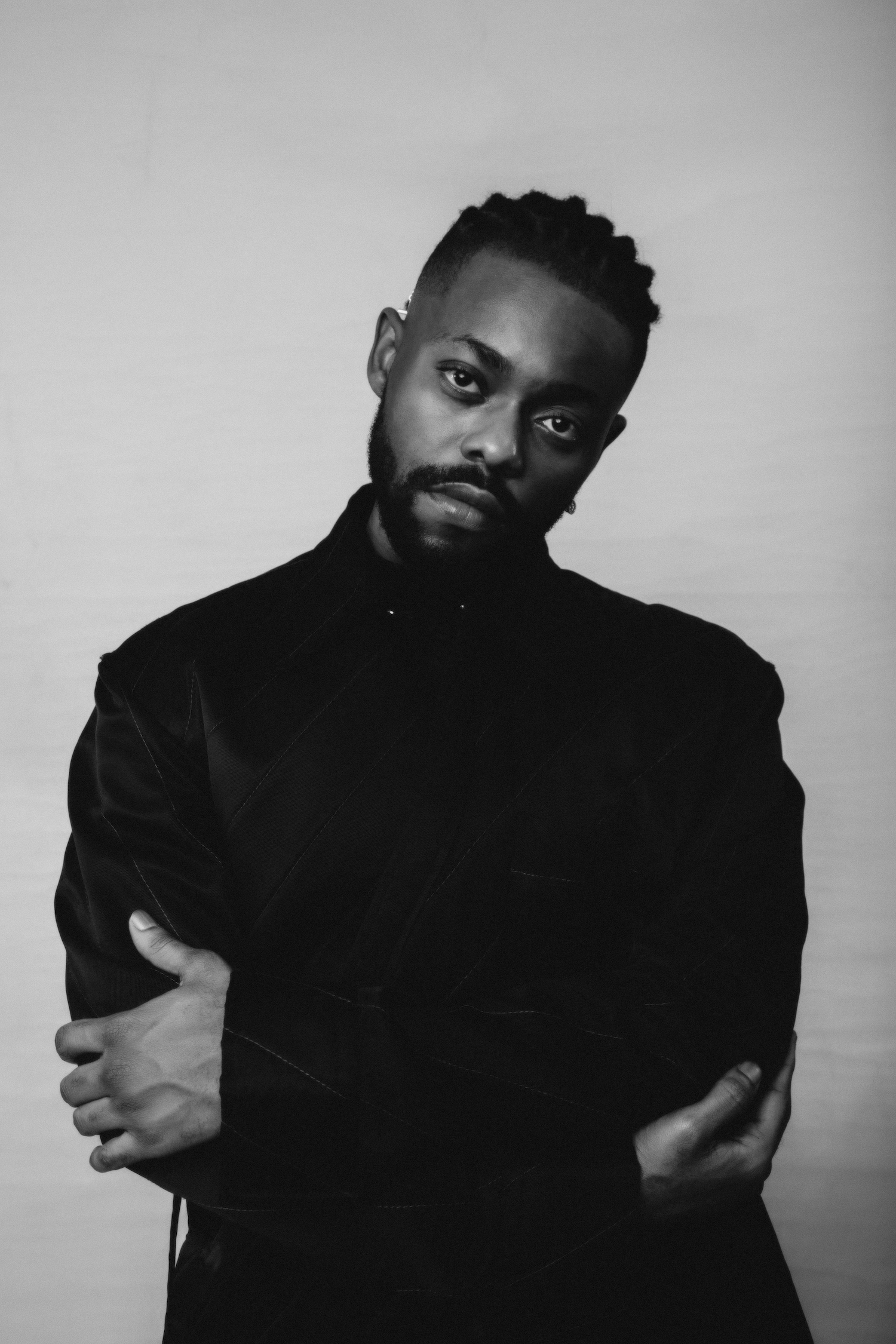
PHOTO CREDIT: Lojay
Name: Lojay.
Where are you from?: Lagos, Nigeria.
Instagram: @lojaymusic
How does the global perception of African music impact its representation in the music industry?
Now more than ever, African music is getting the recognition it deserves and when you listen to the music that’s being put out now and see the quality of visuals, you can tell that the creators are very aware of where we are. Knowing the world is watching has driven a lot of creatives to push themselves and the quality of results just speak for themselves.
Do you think the fusion of traditional and modern music in Africa has contributed to the diversity and richness of the creative scene? If so, how?
Fusion always creates interesting outcomes and that’s been the case with African music. Africa has a very rich musical history, and there are many diverse sounds to source inspiration from. Many different regions and musical backgrounds which all bring something to the table, from which we the creatives can gain inspiration and constantly unearth new sounds and styles.
Share one word that describes Africa to you.
Diverse.
Kwesi Arthur
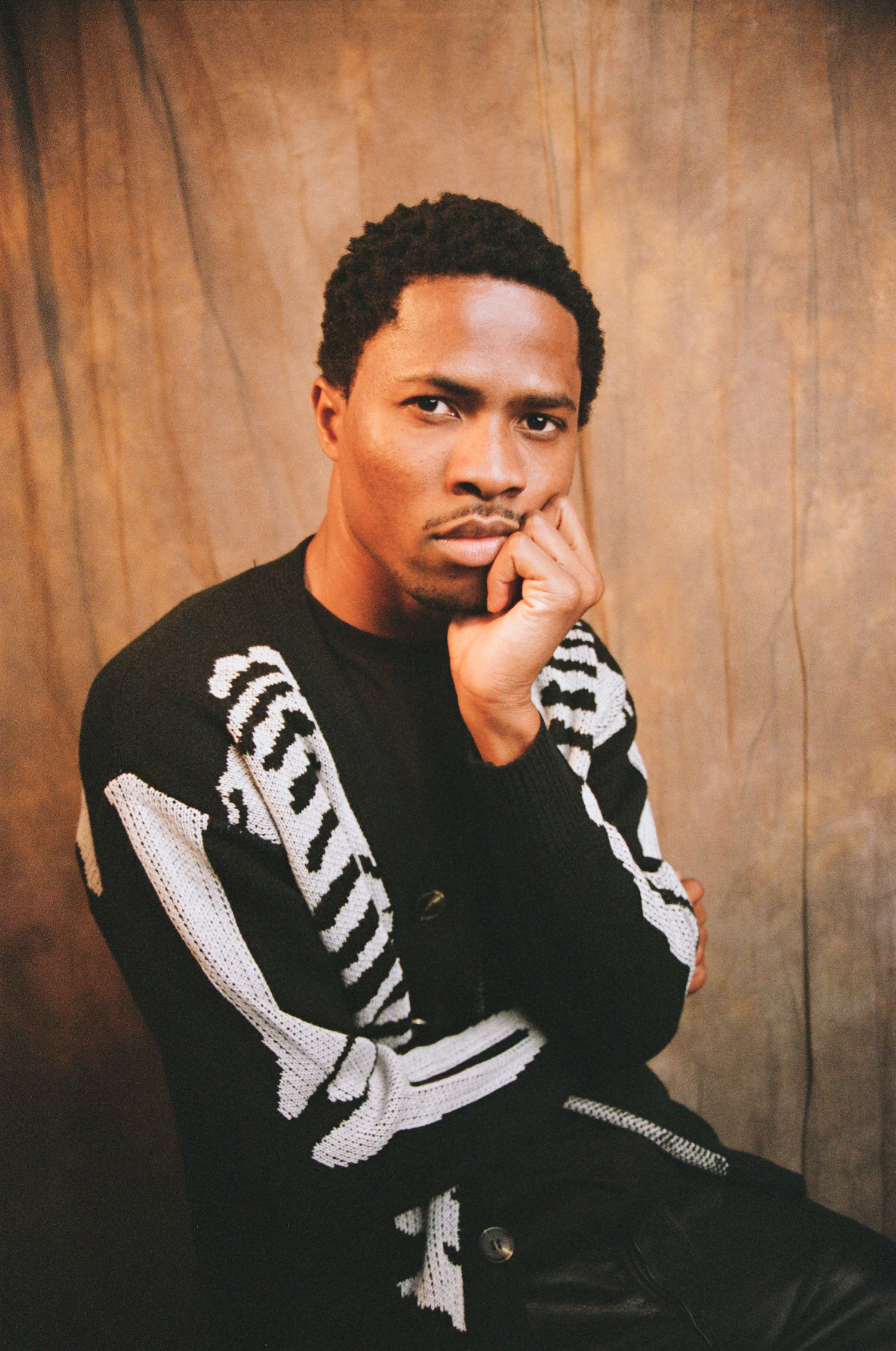
PHOTO CREDIT: @joshuajcrawley commissioned by @globalentryofficial
Name: Kwesi Arthur.
Where are you from?: Tema, Ghana.
Instagram: @kwesiarthur_
In what ways has music helped to shape and define African culture and identity in 2023?
The kids listen to our music and use the lingo like we Dom mimicking most of the things they see us do in these videos; we are the now and the future. Music has also shined more light on the diversity and richness of the African culture. The outside world has been aware of Afrobeats, Amapiano’s been banging everywhere I turn to in America, it’s in Europe, hip-hop is doing its thing, not to talk of the other soothing genres we have coming out of the continent. Africa seems more exciting to the outside world at the moment than it’s ever been and music has been one of the tools helping project its image through sound and visuals. Talk about visuals it’s shed light on the African fashion scene and other aspects of our culture! I think music is probably the only thing besides sports keeping Africans calm through these trying times. It’s spiritual.
How does the global perception of African music impact its representation in the music industry?
Its perception of it now pushes the industry forward. There’s more light on artists from our side than ever before and it’s great.
Do you think the fusion of traditional and modern music in Africa has contributed to the diversity and richness of the creative scene? If so, how?
Our creative scene has always been diverse.
Share one word that describes Africa to you.
Life.
Follow PAUSE on Instagram


